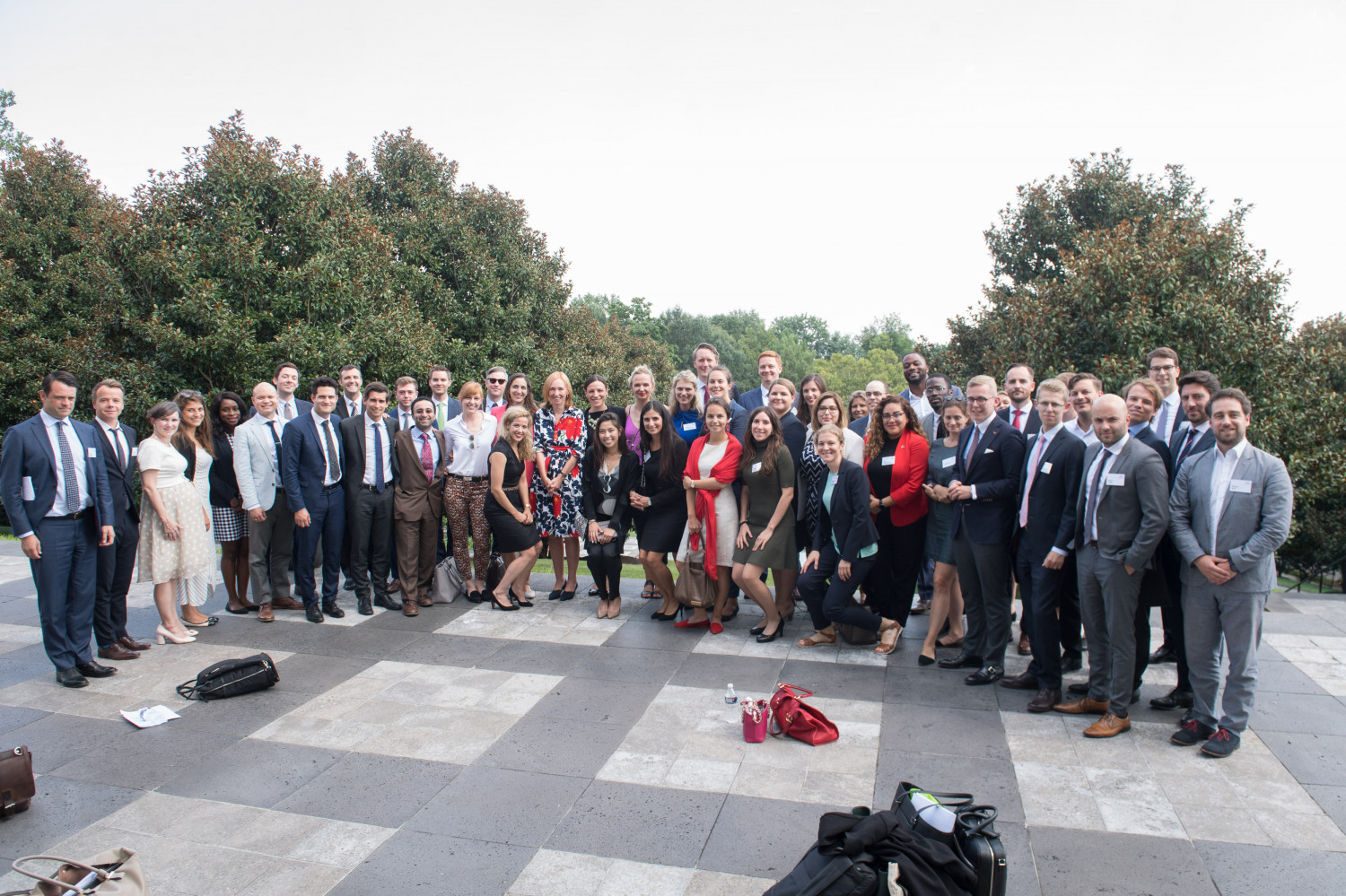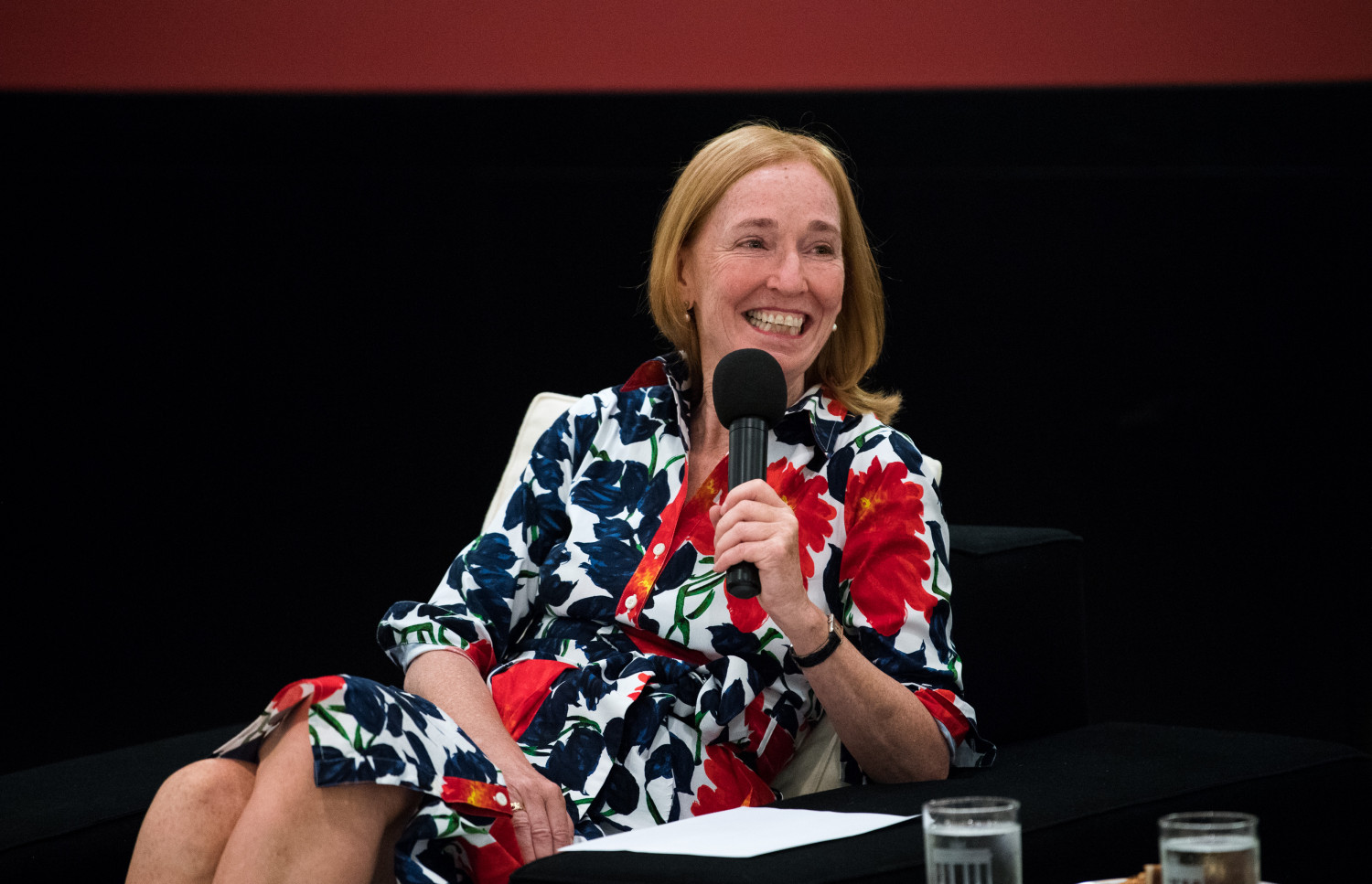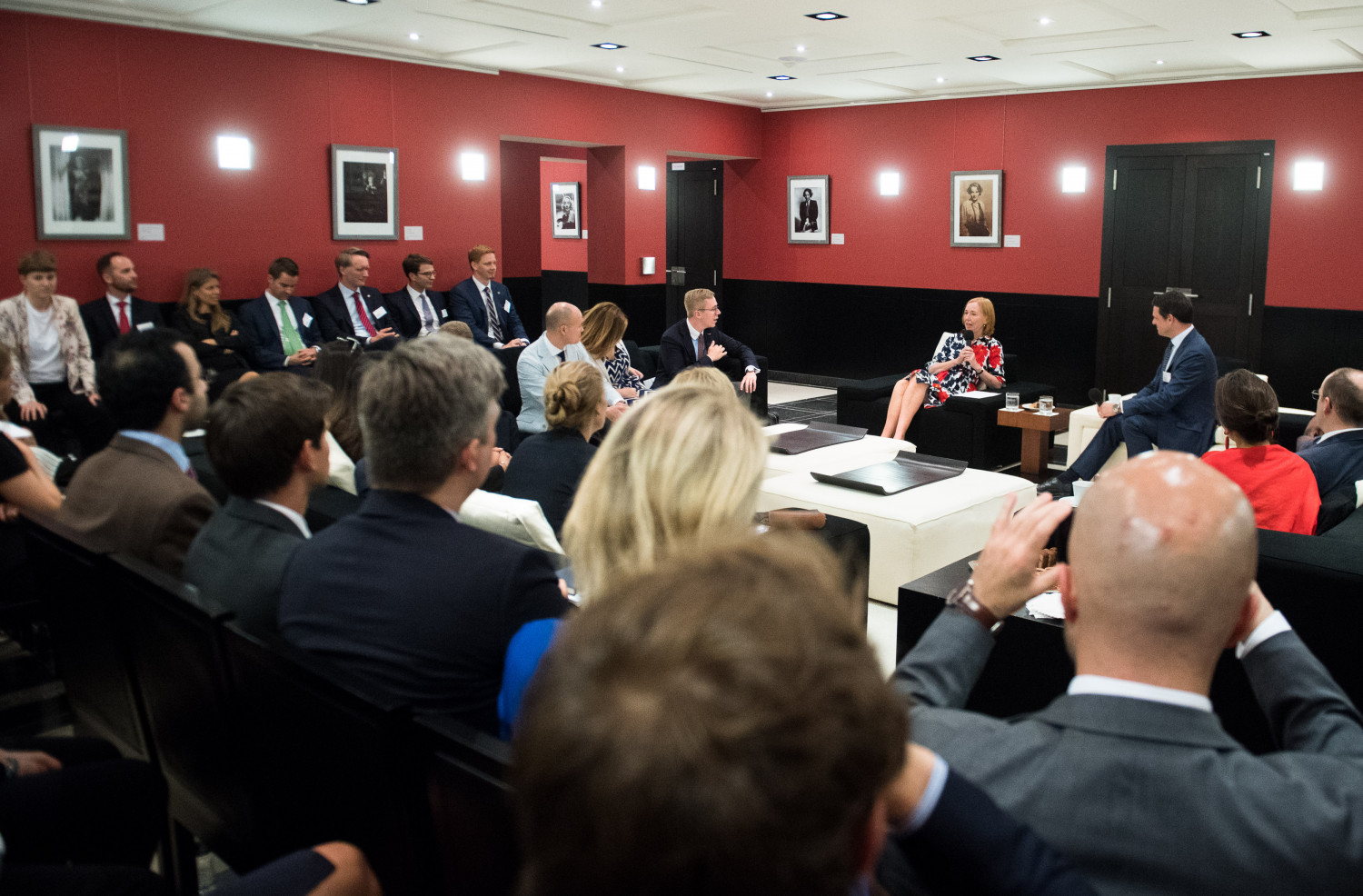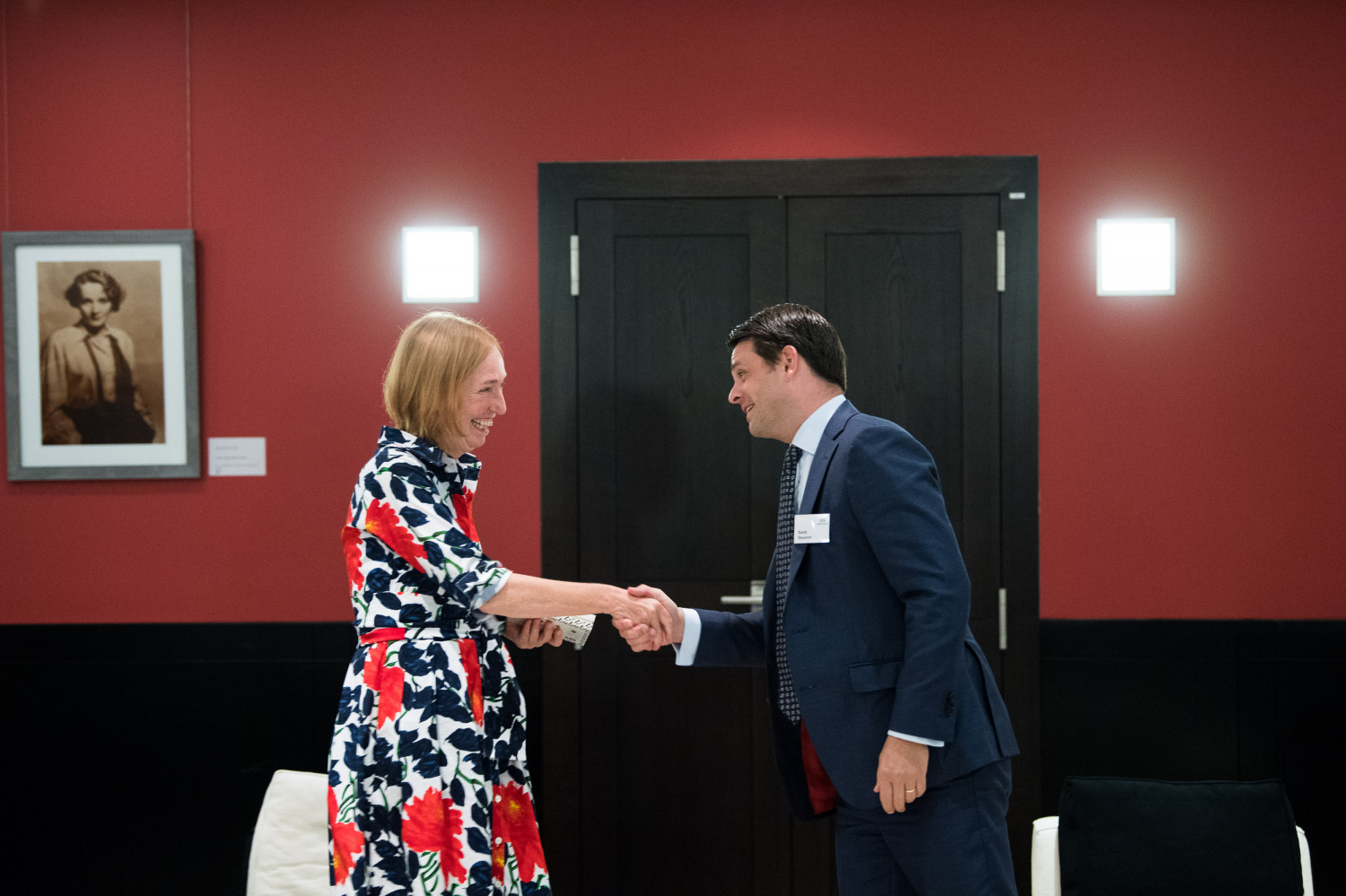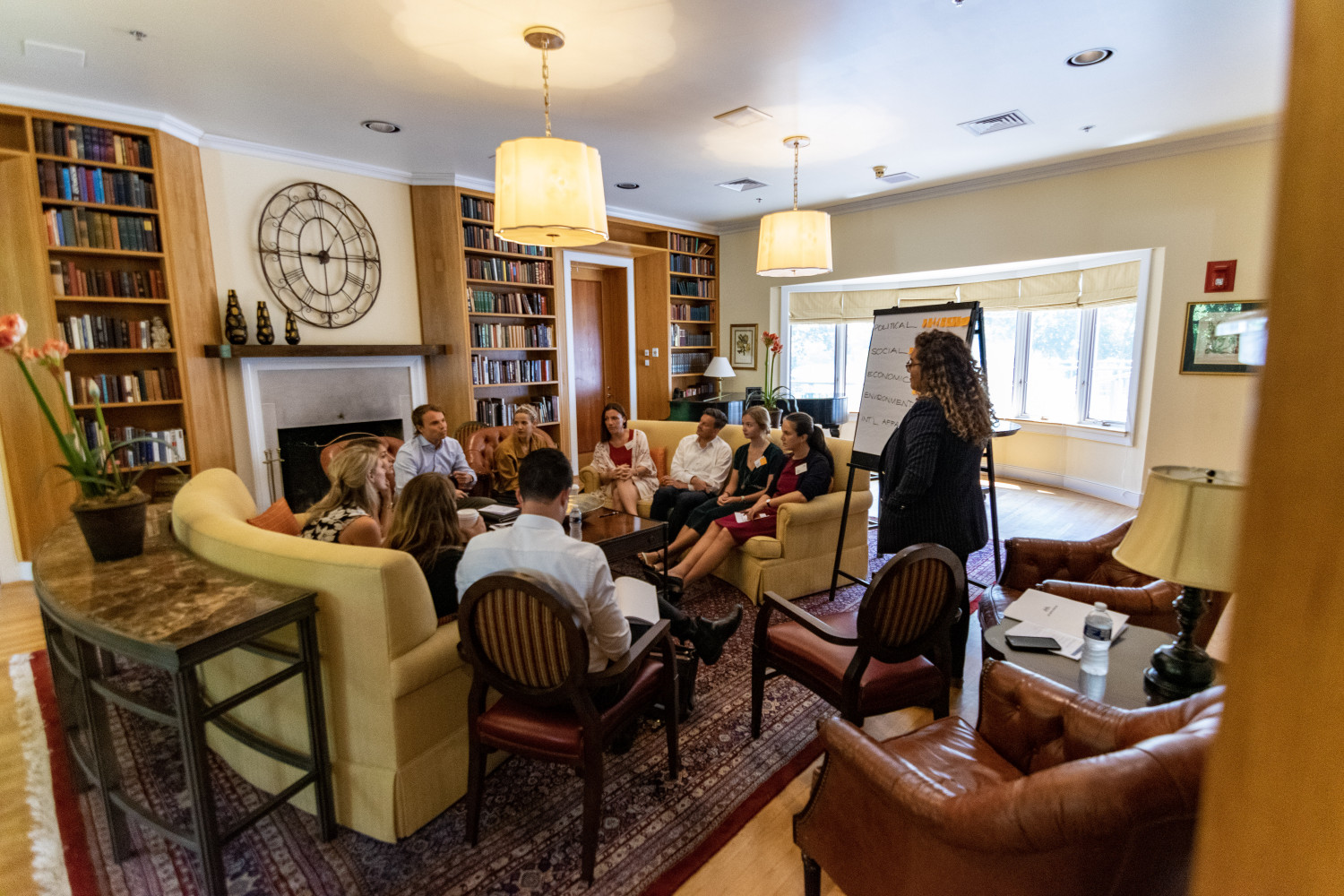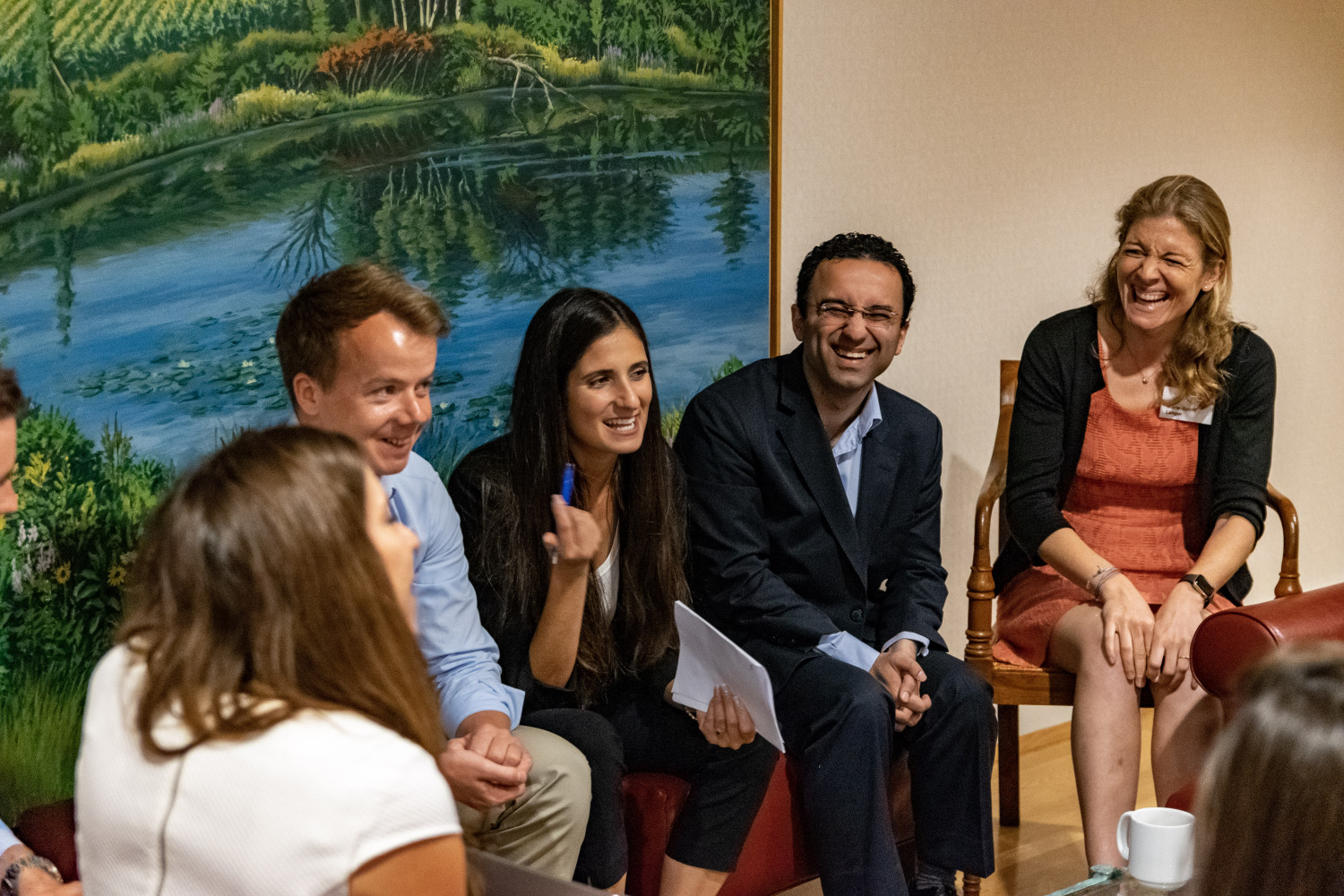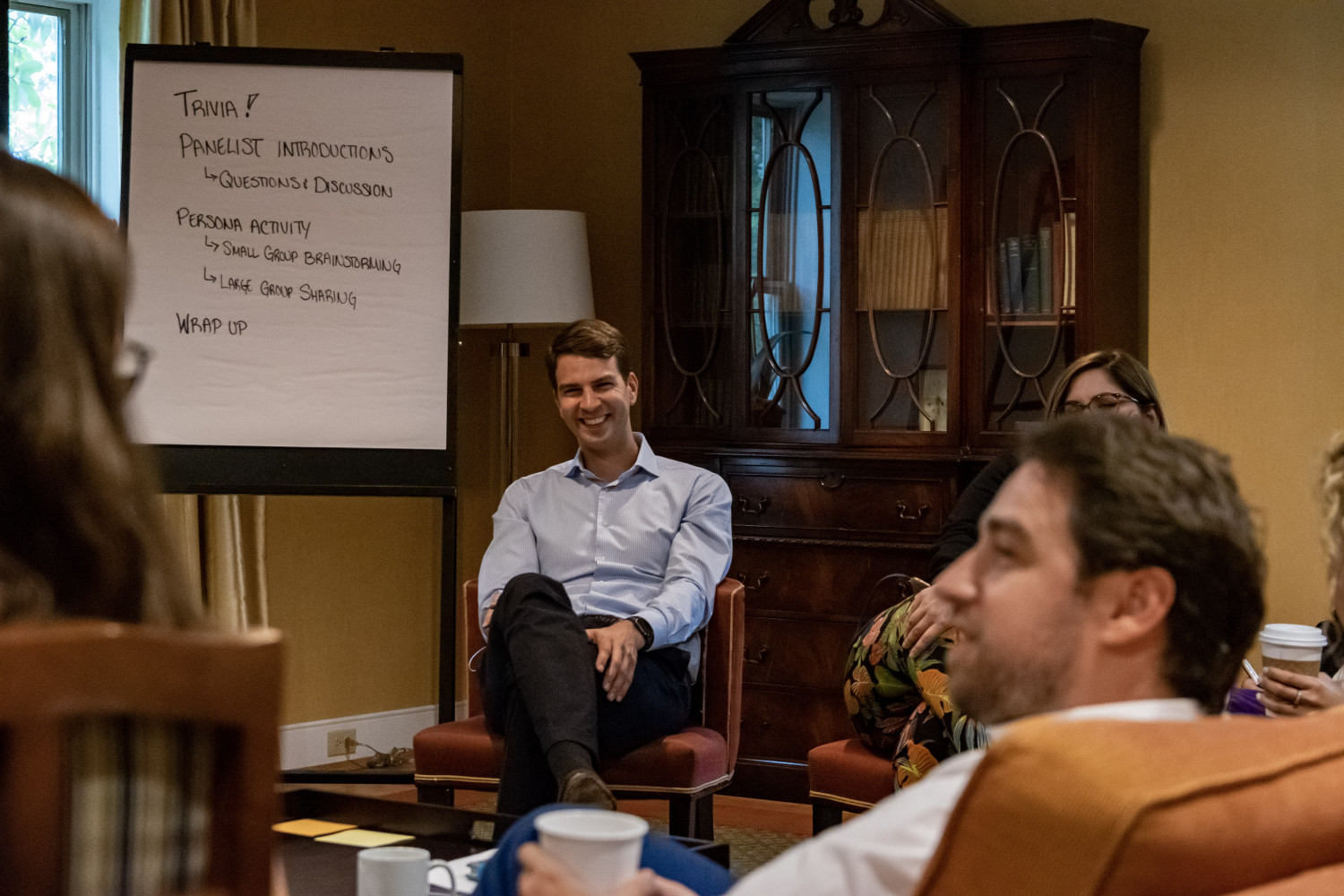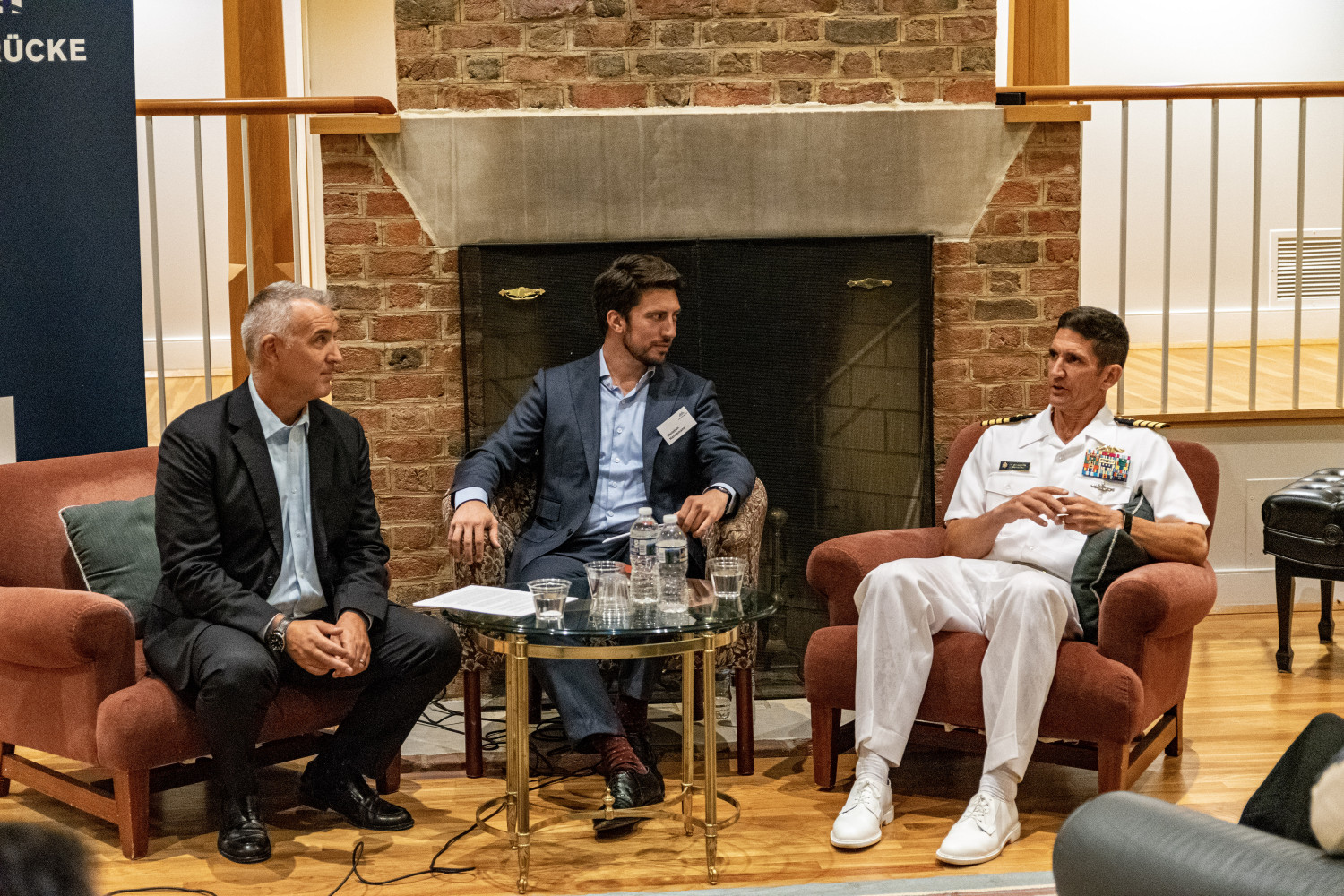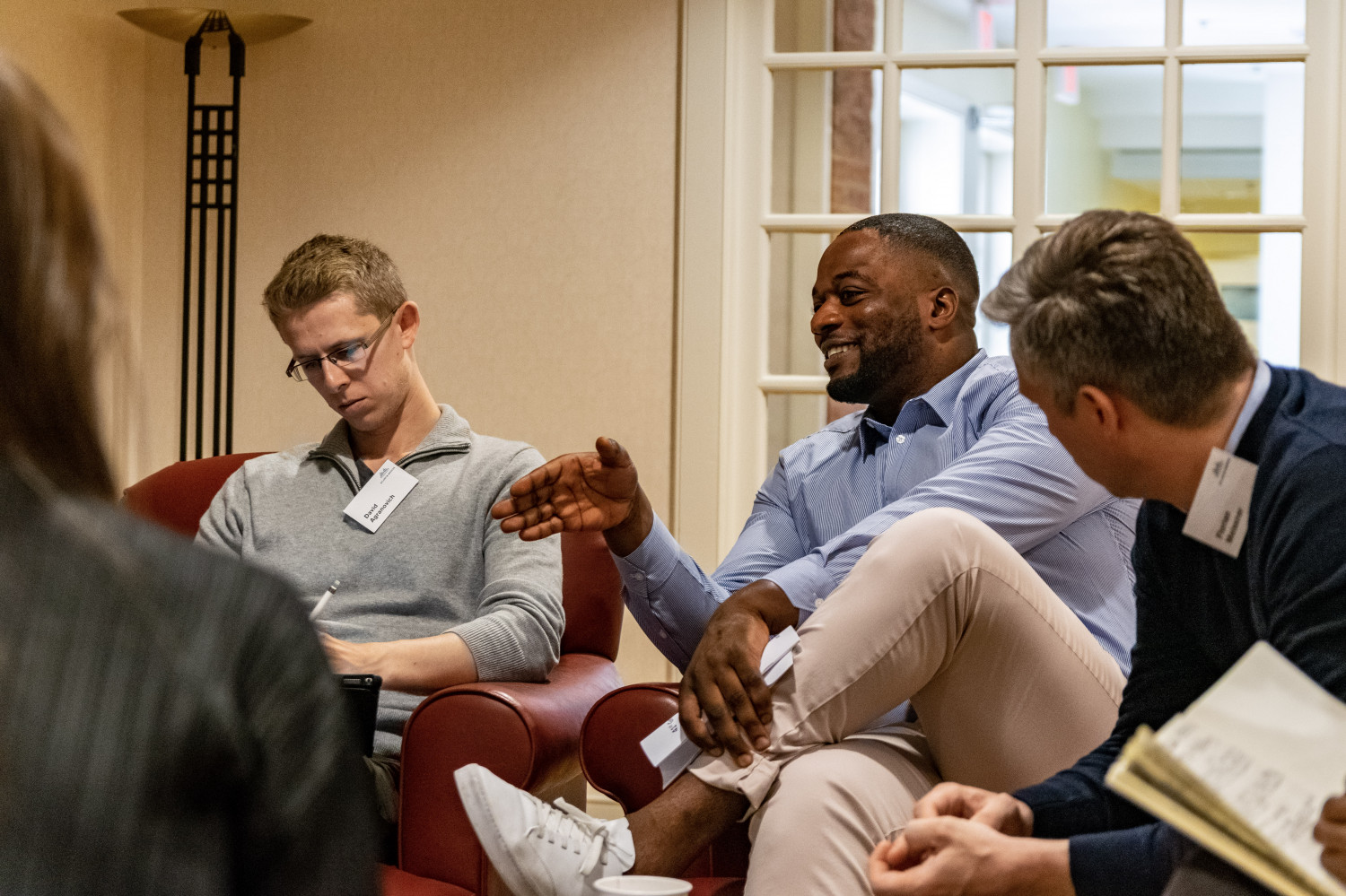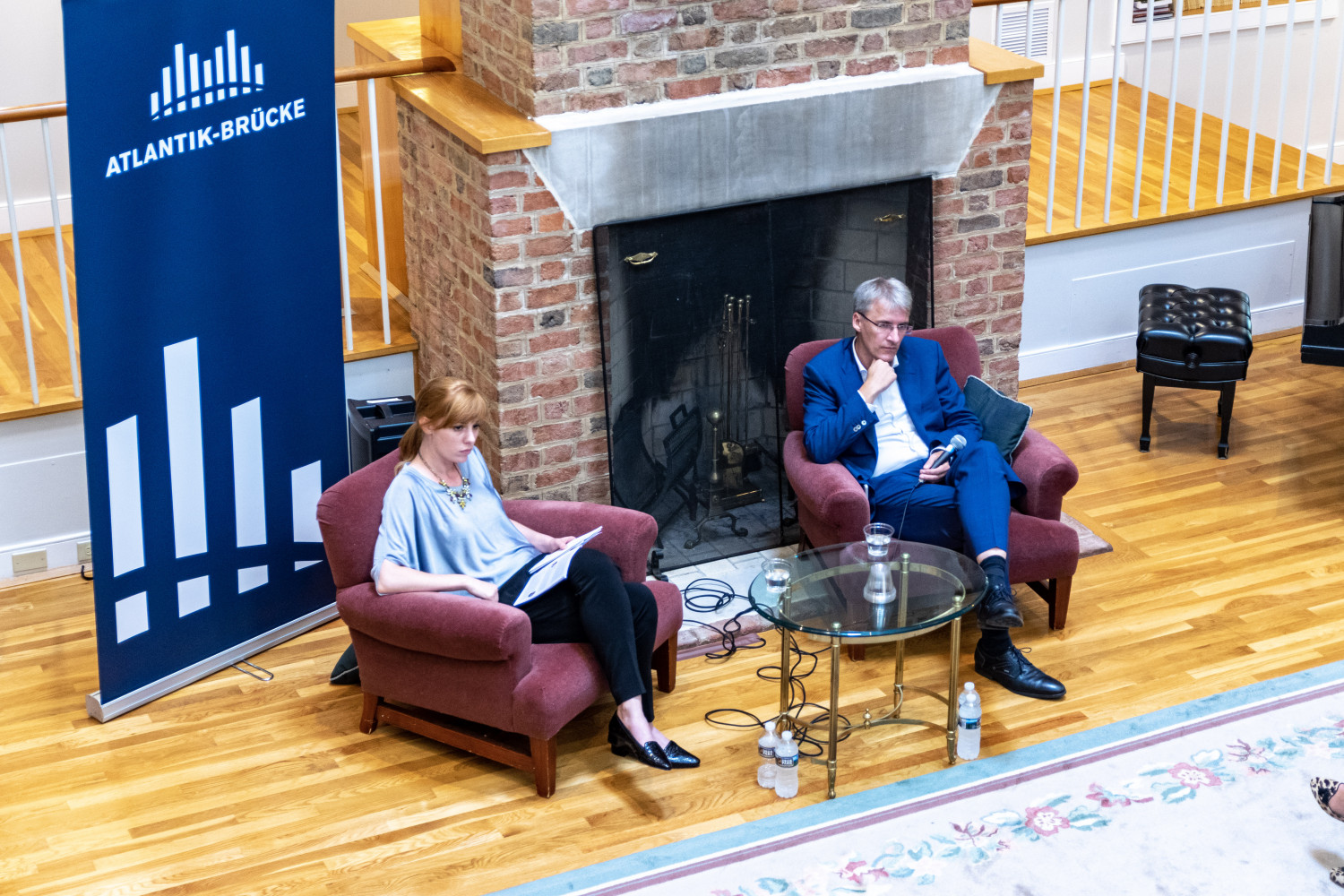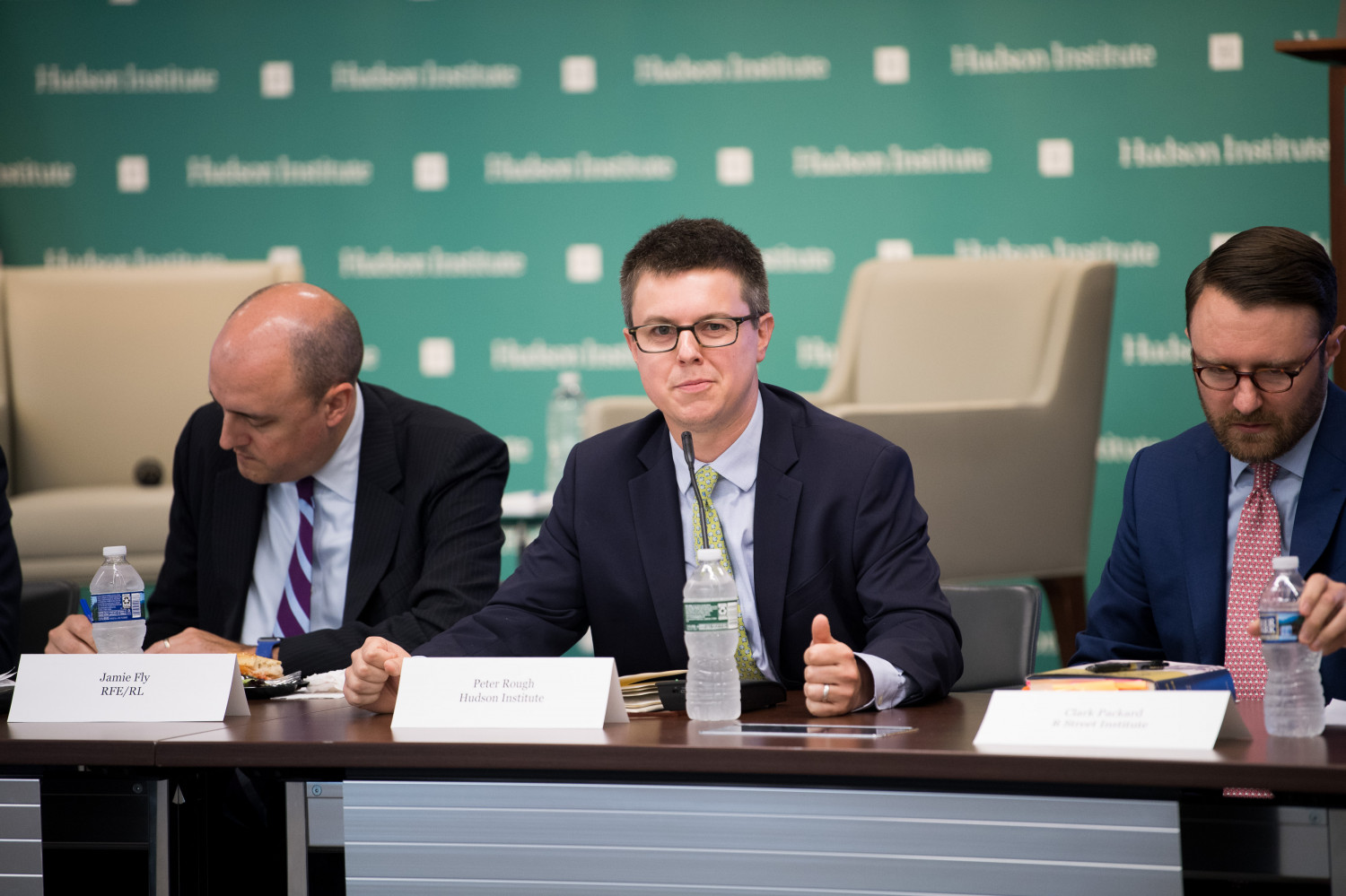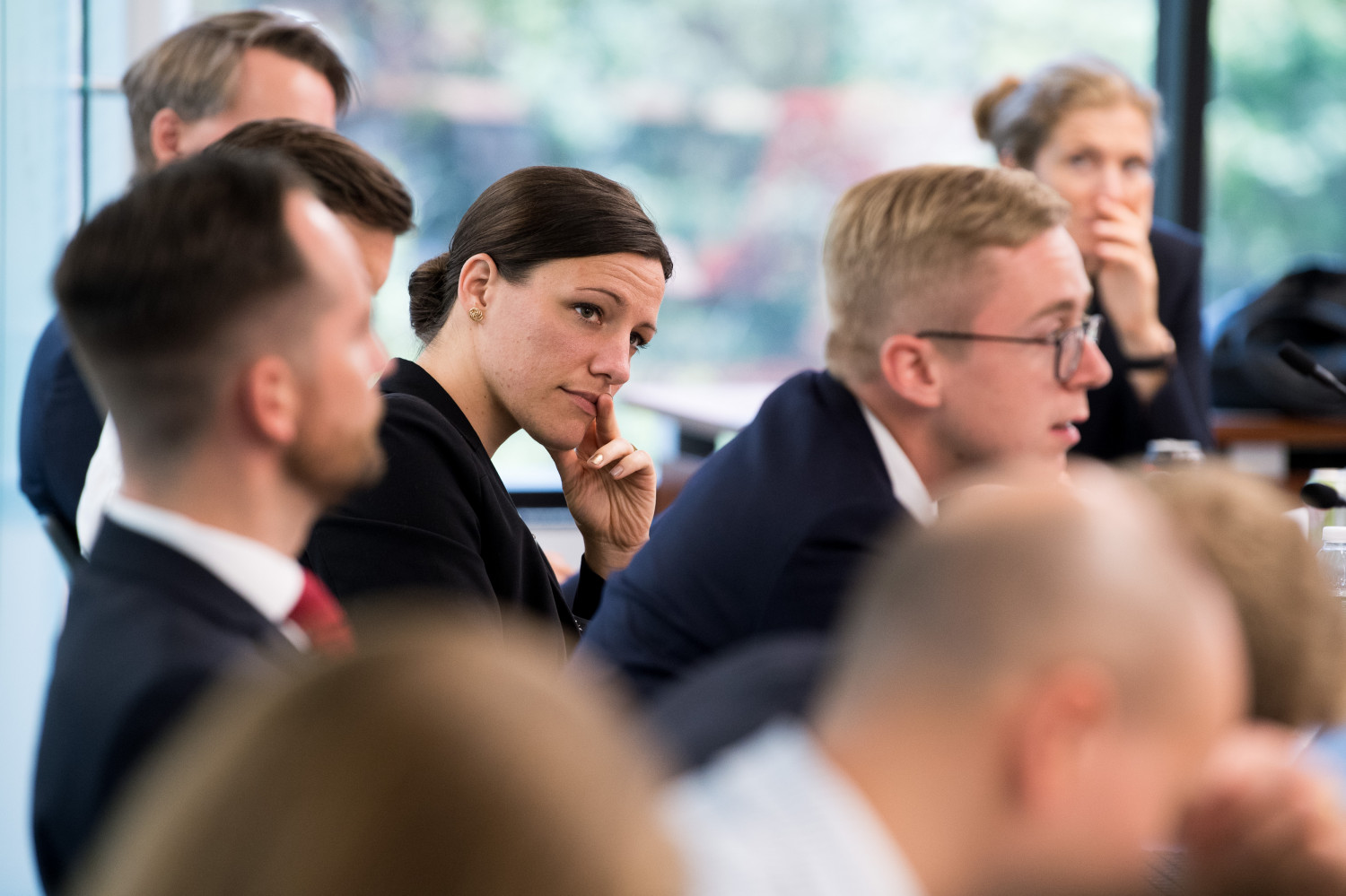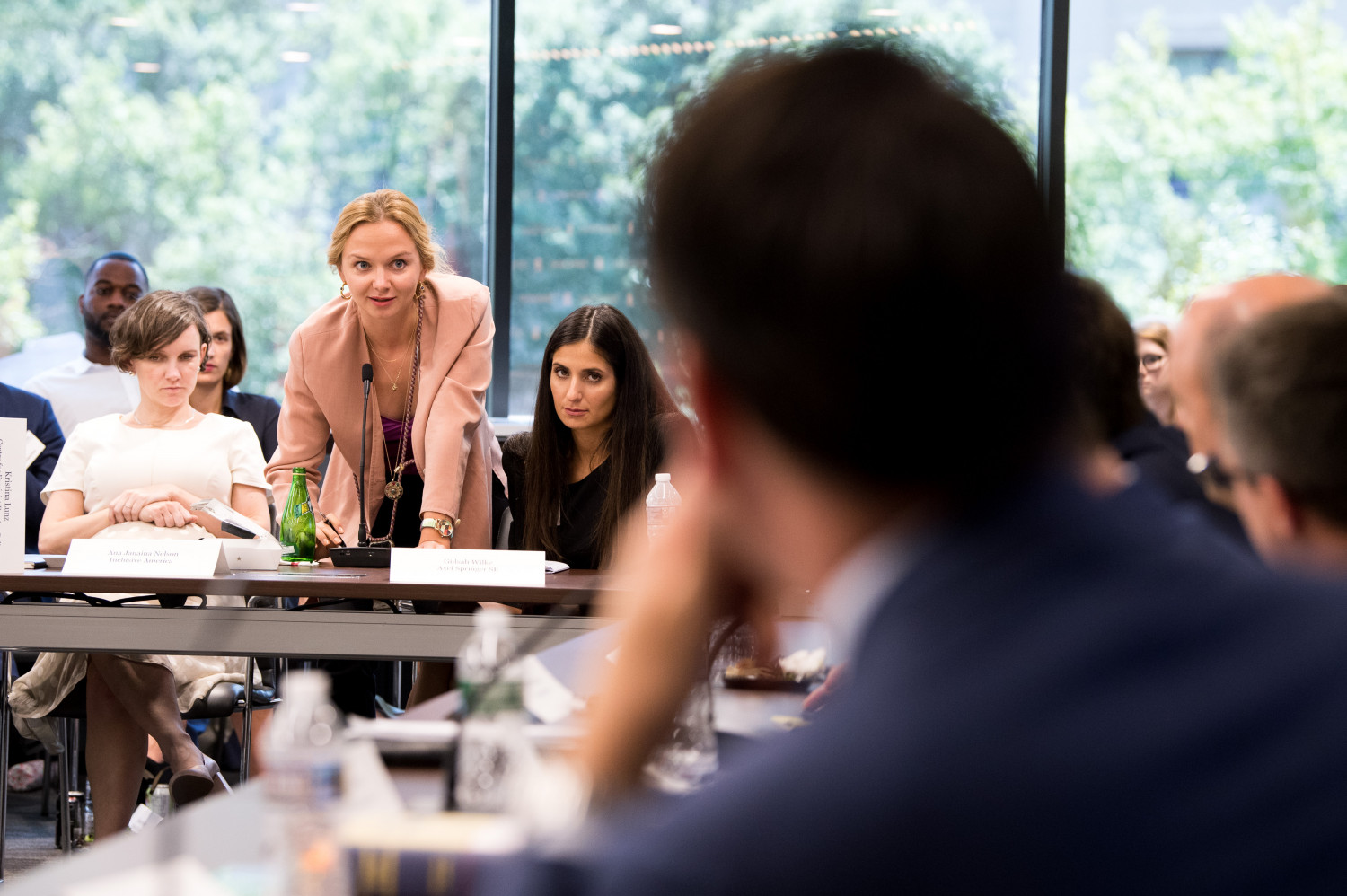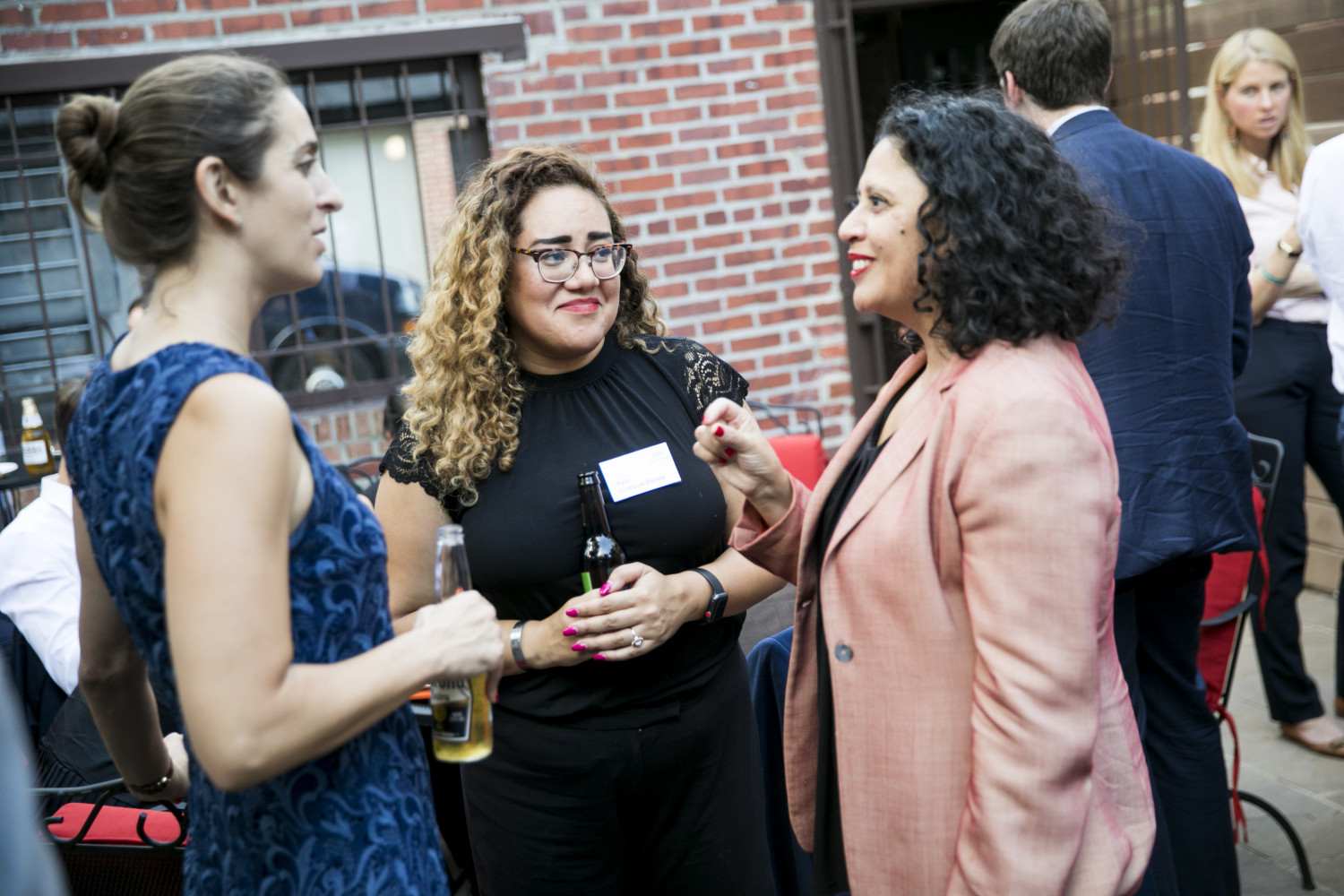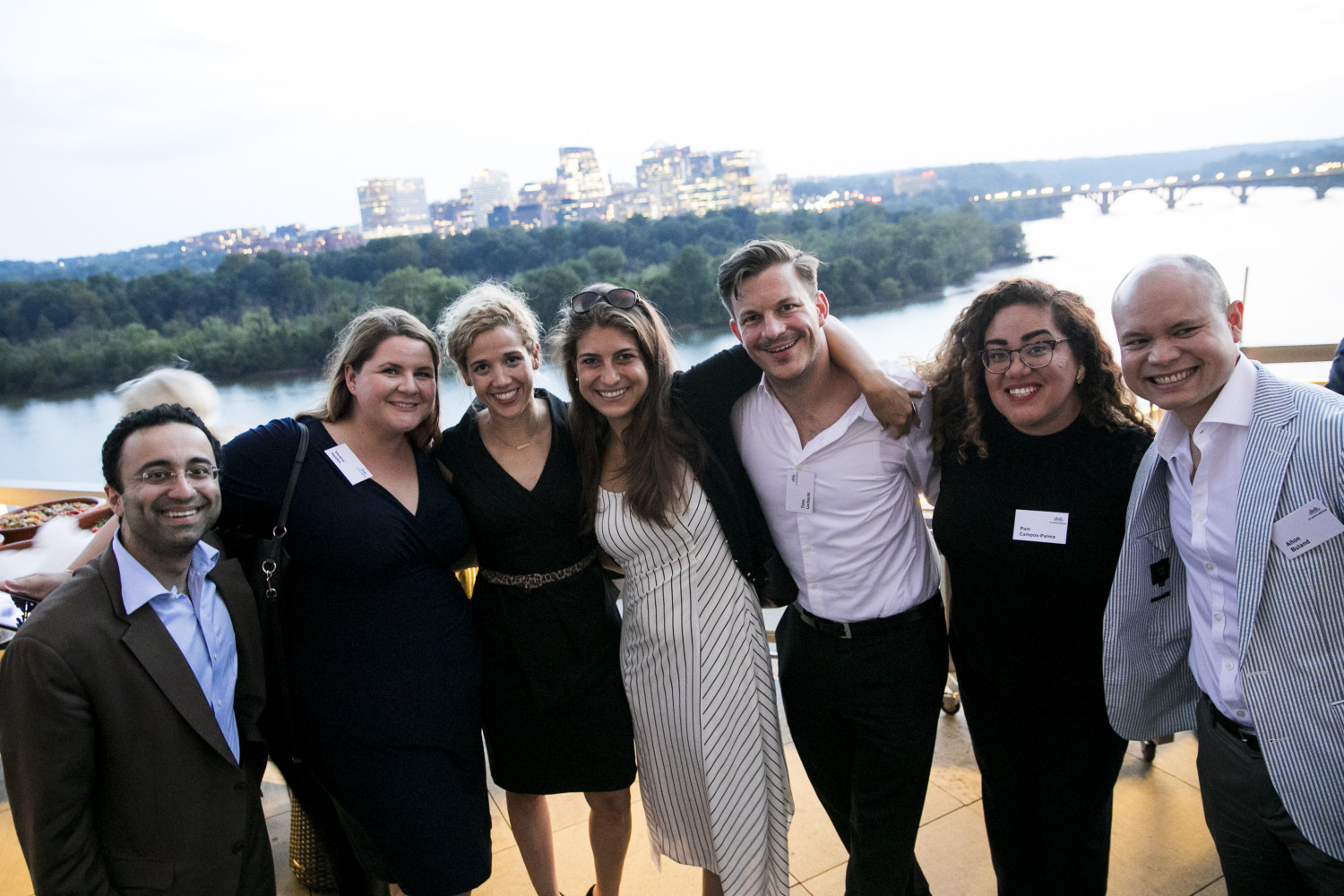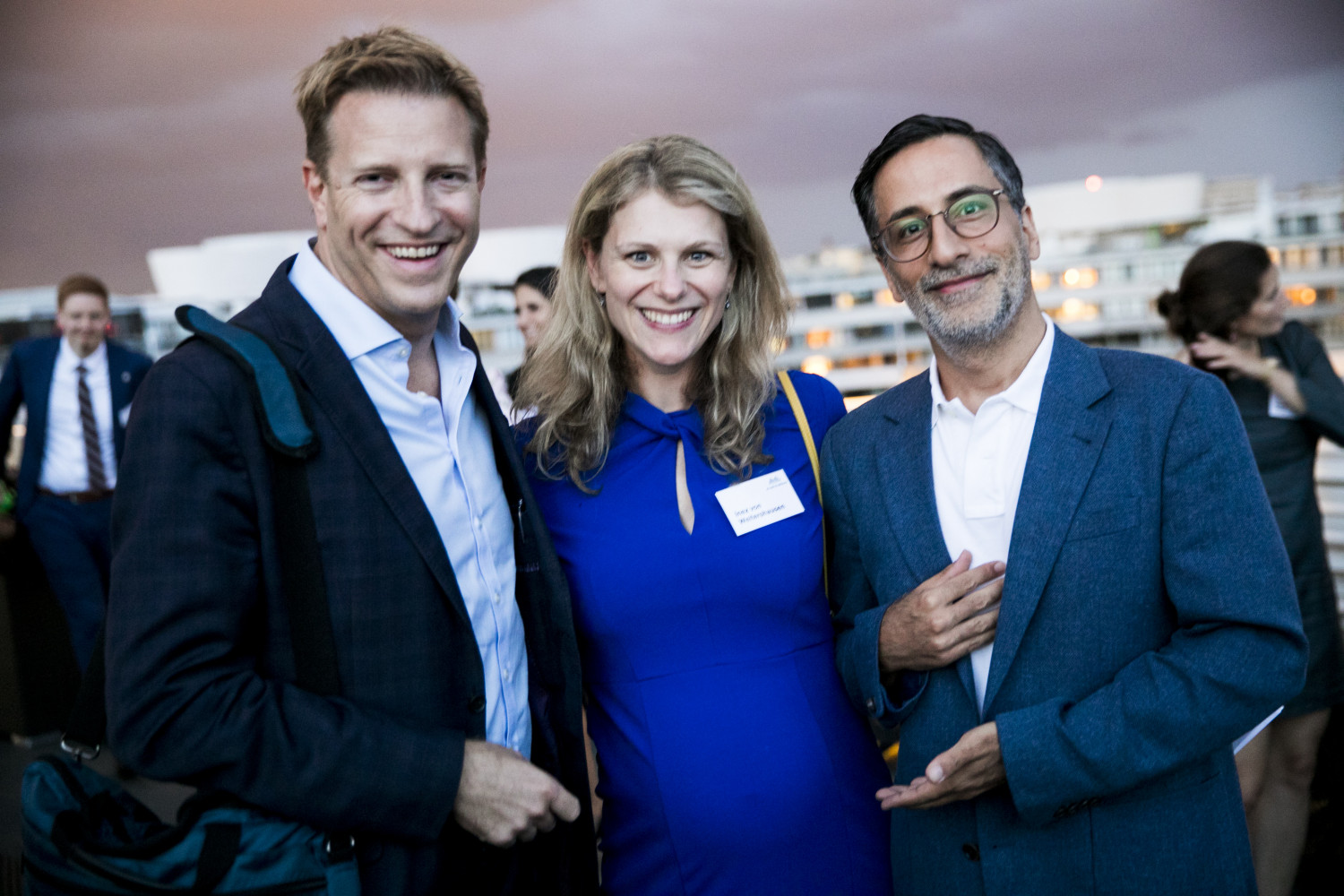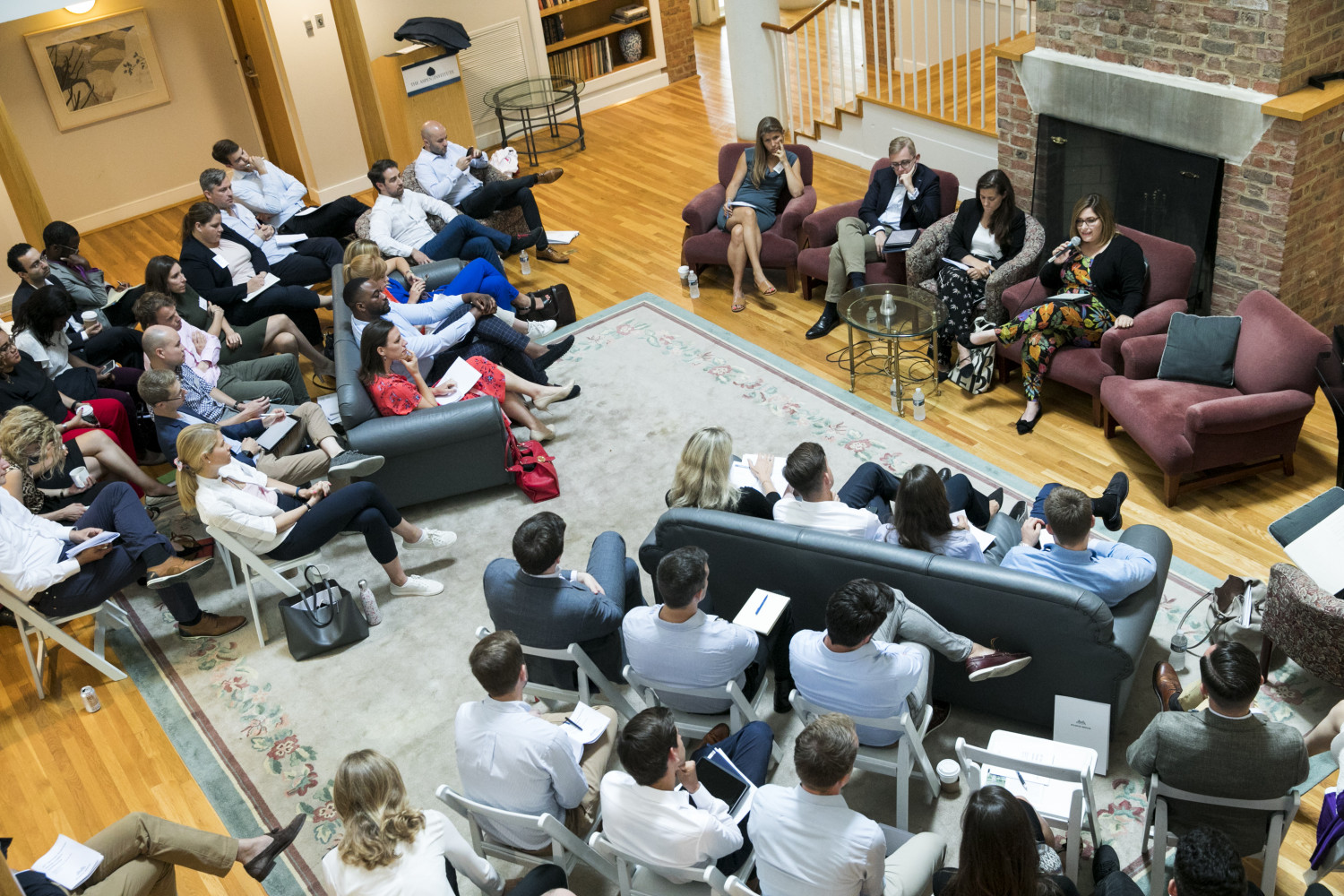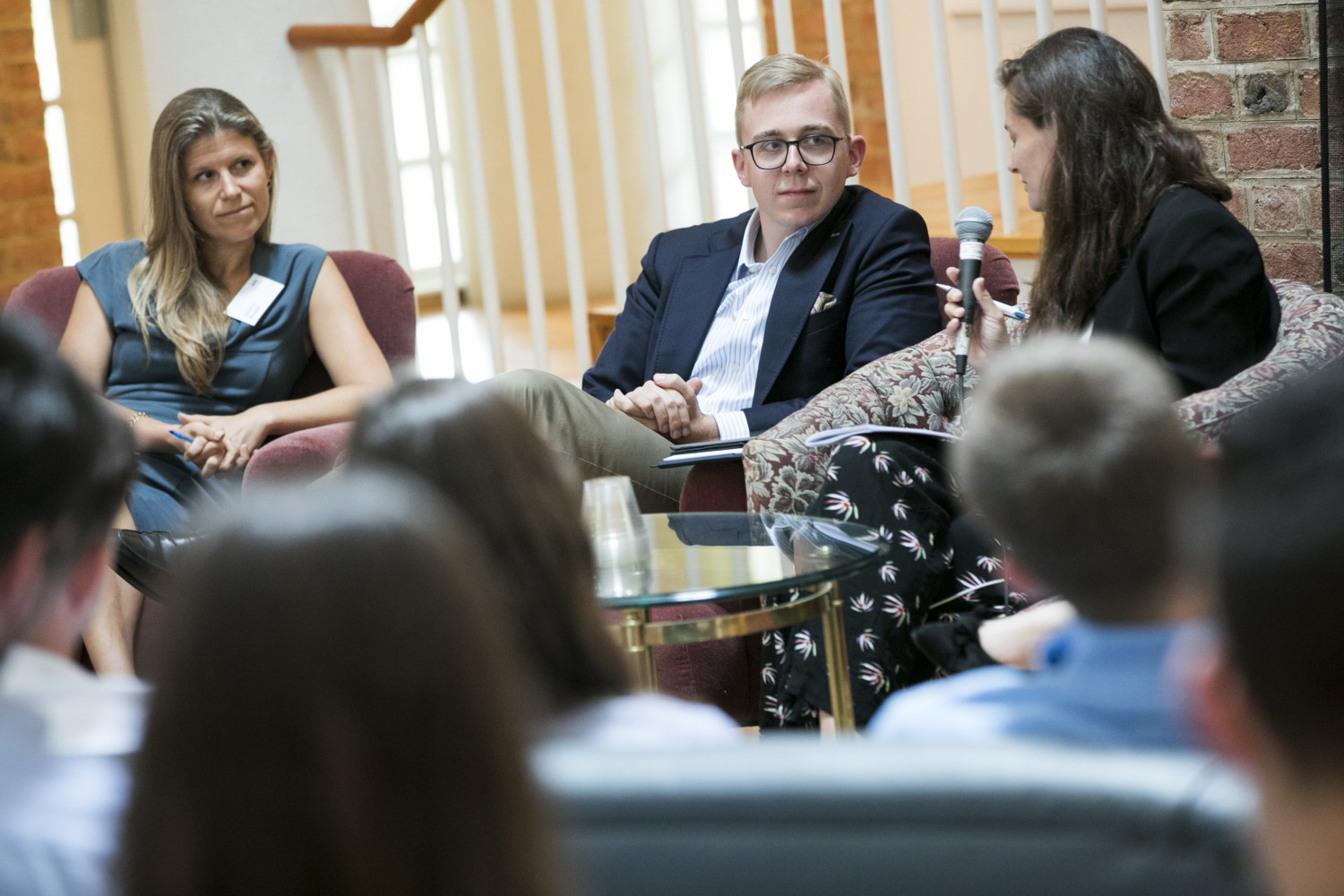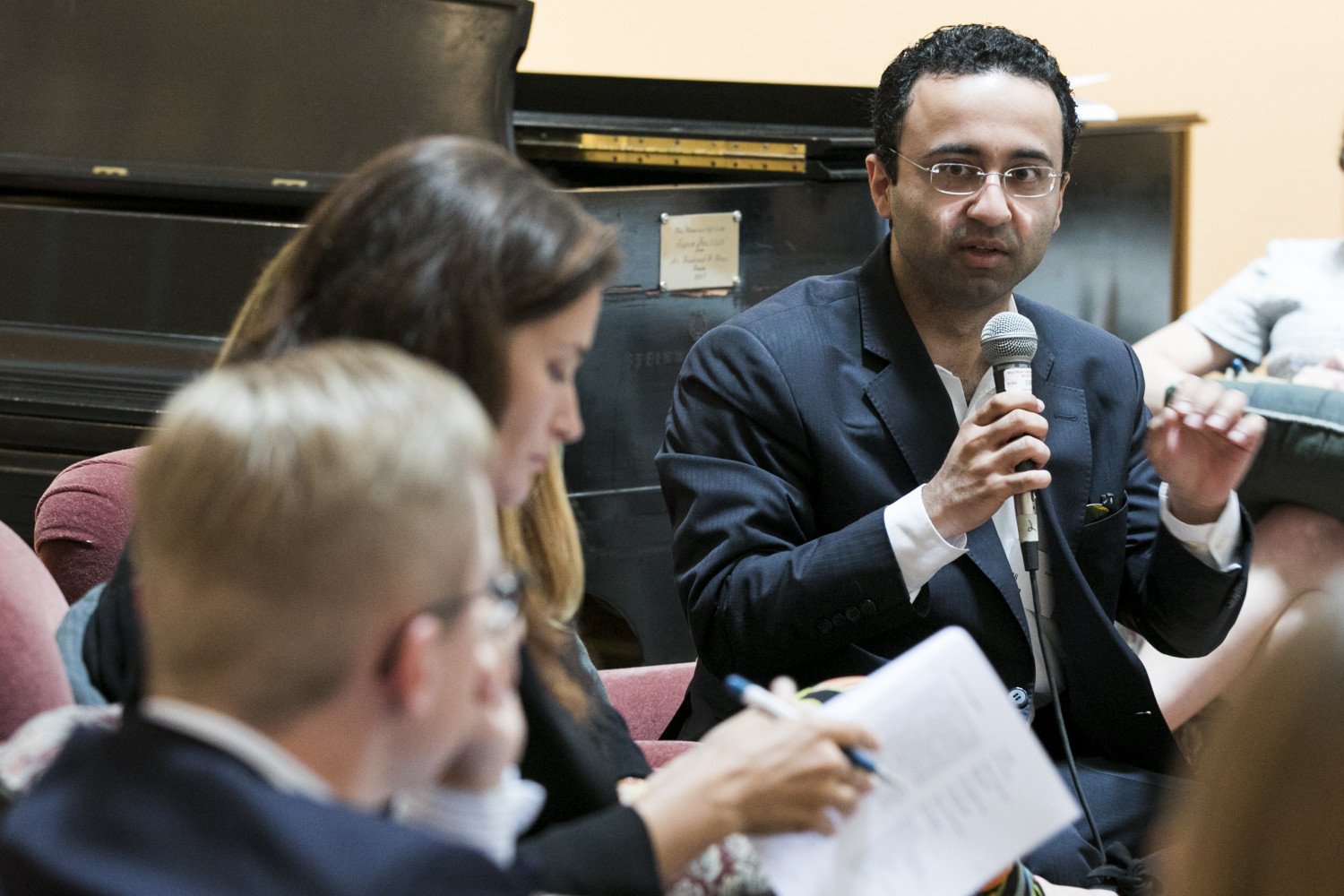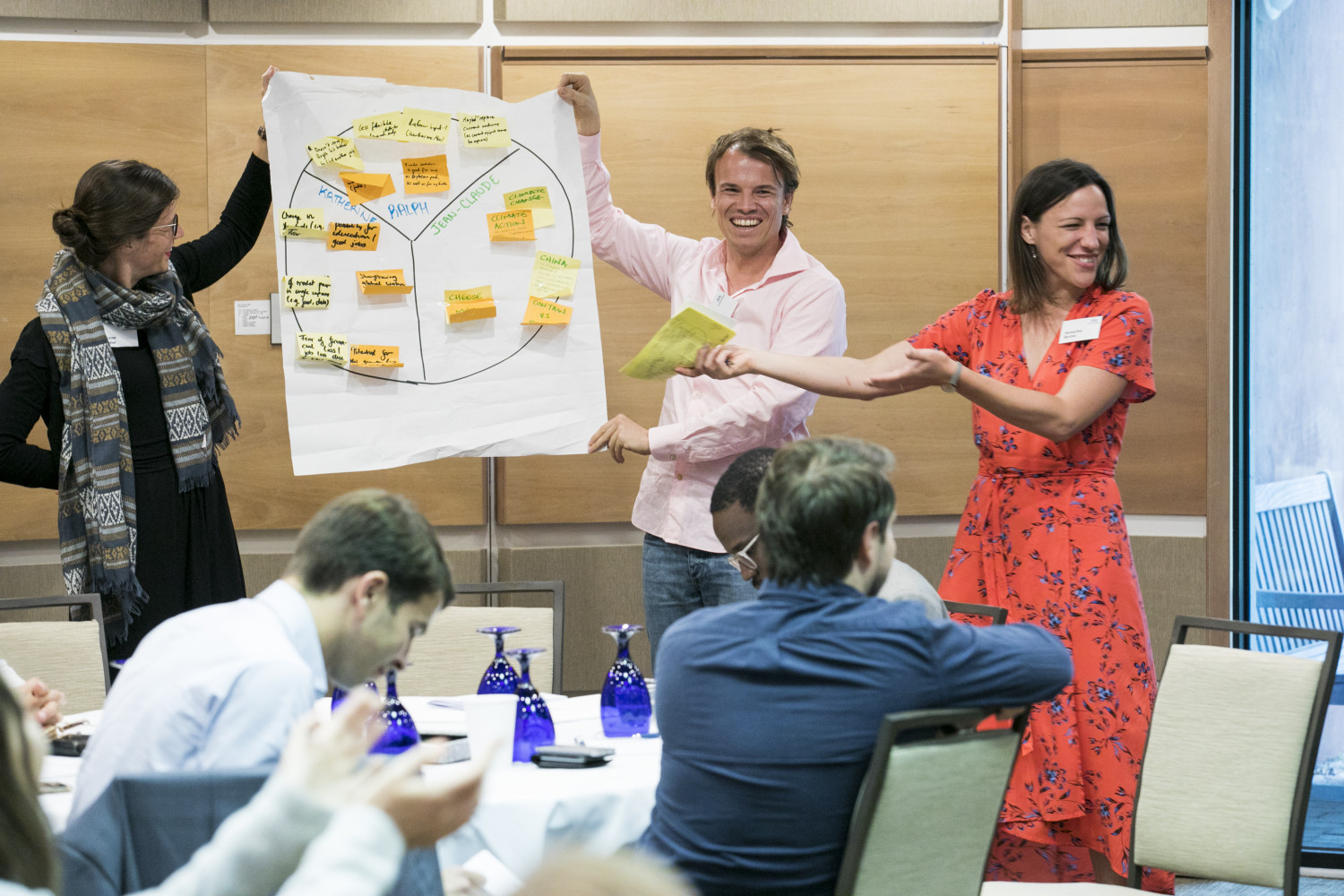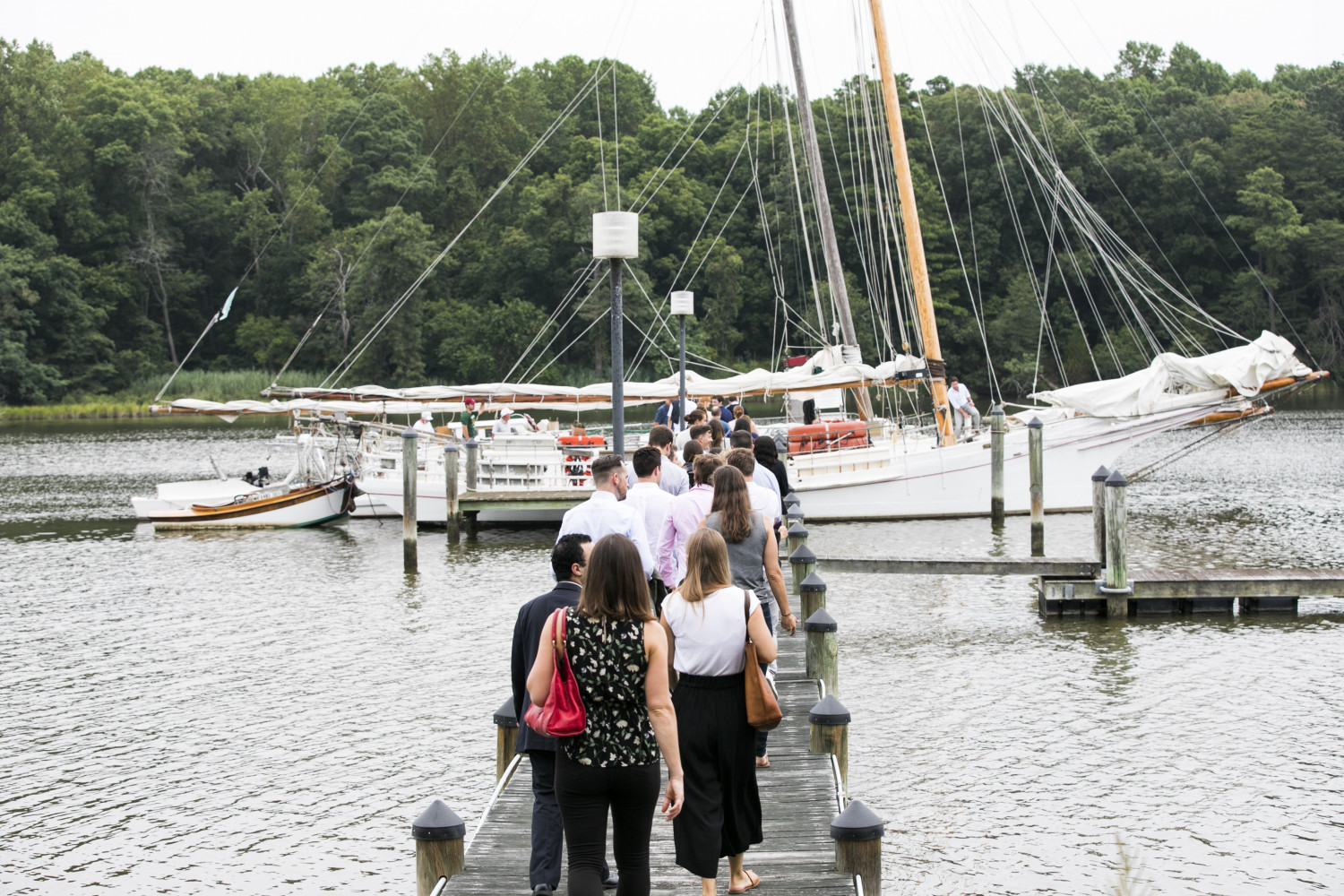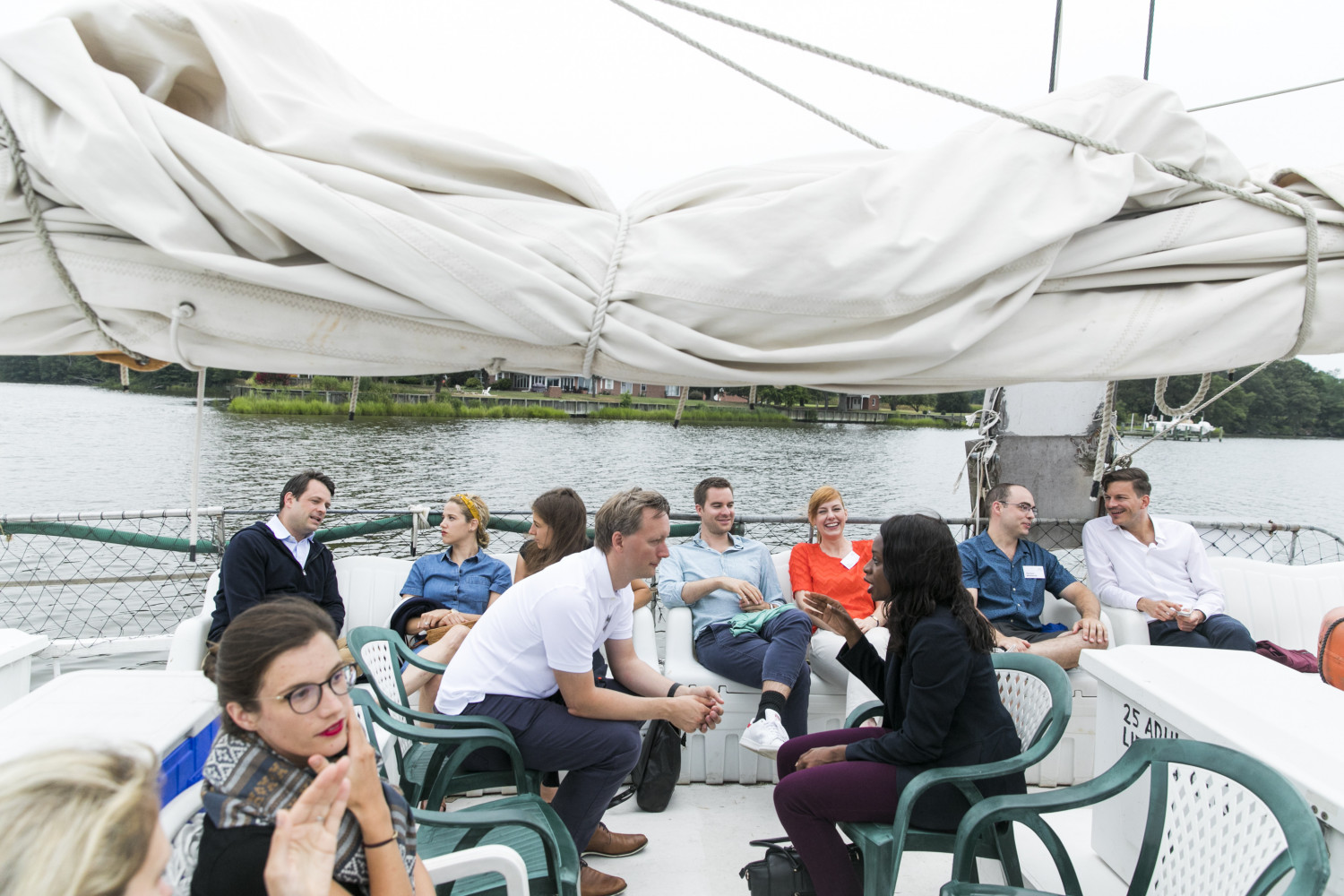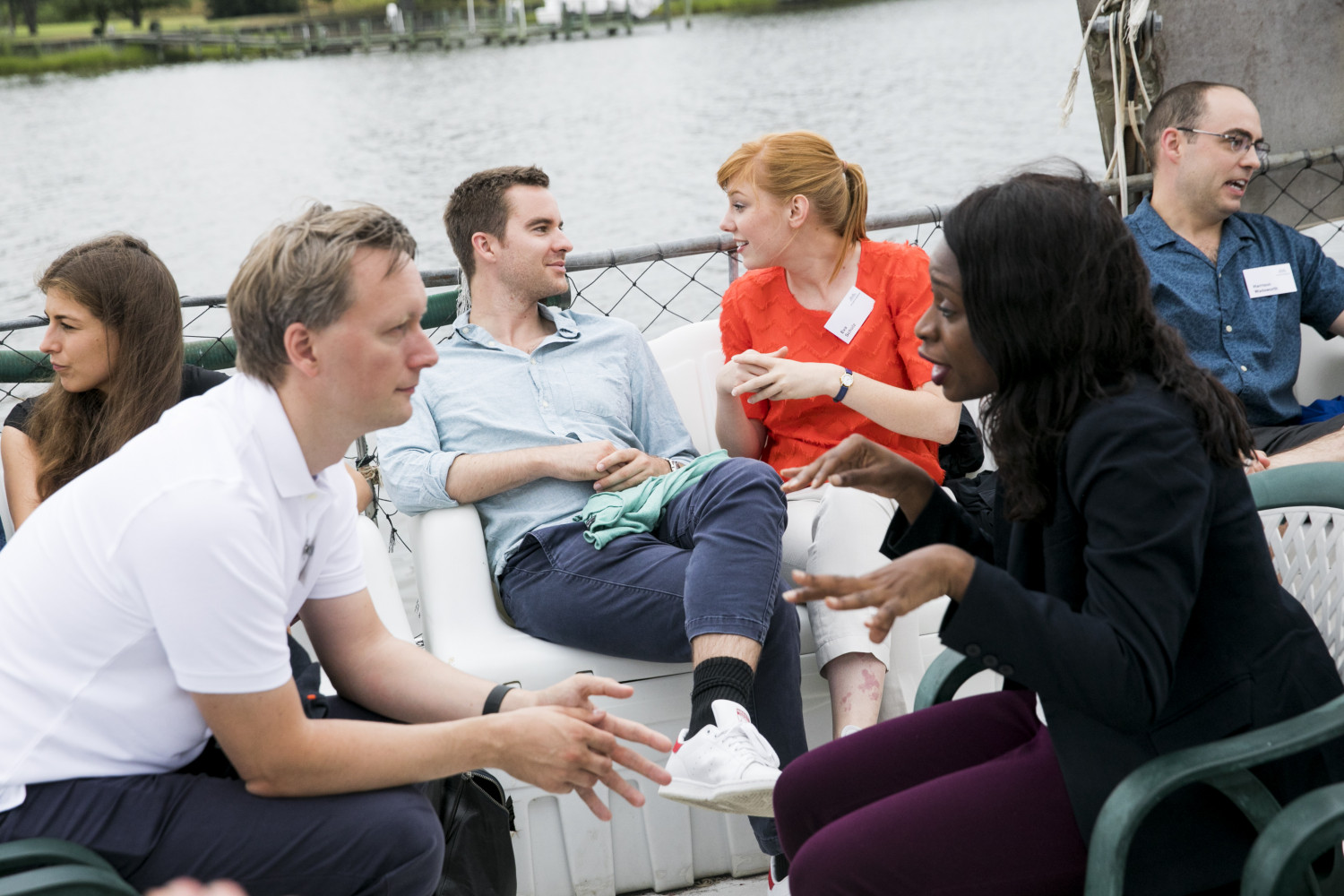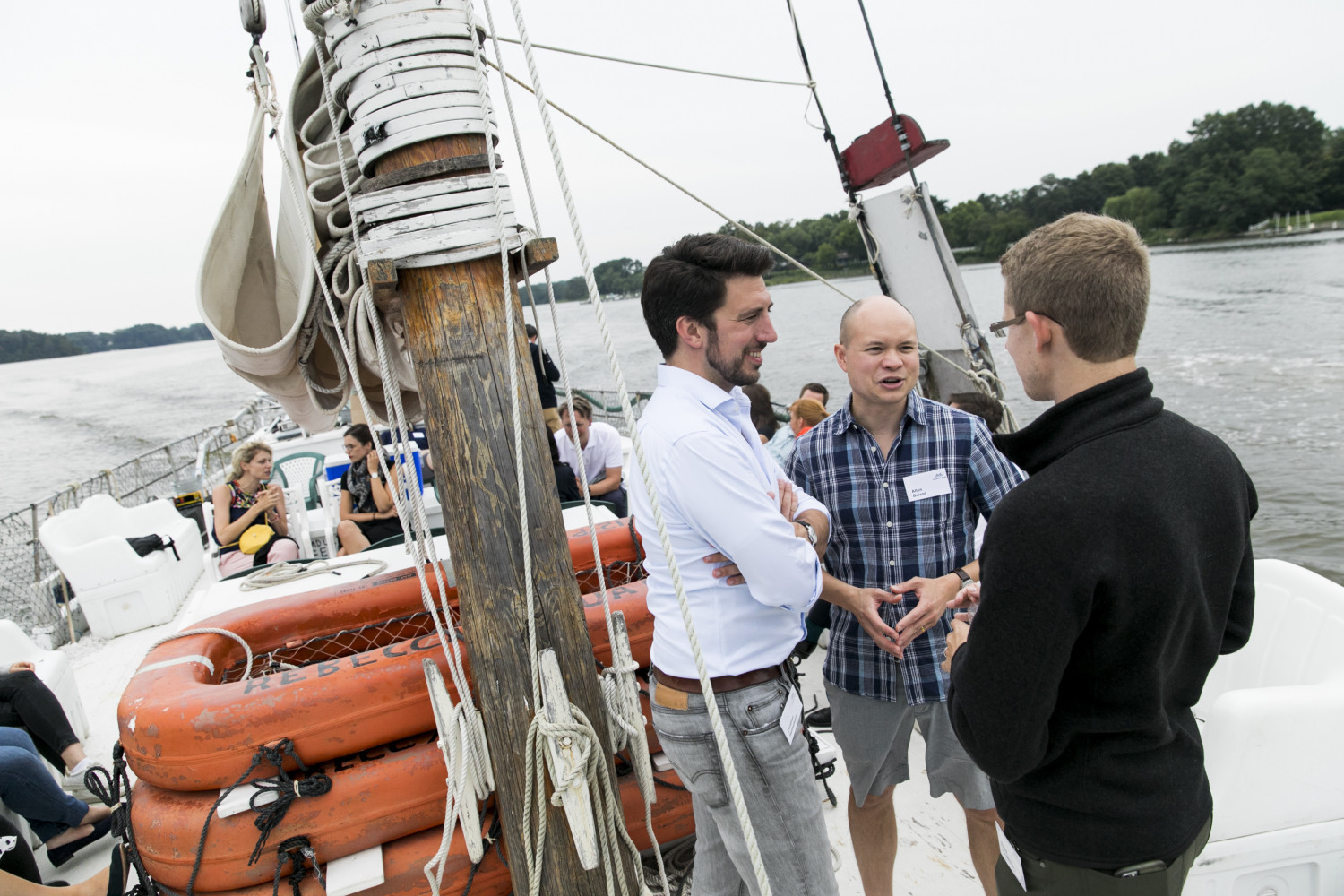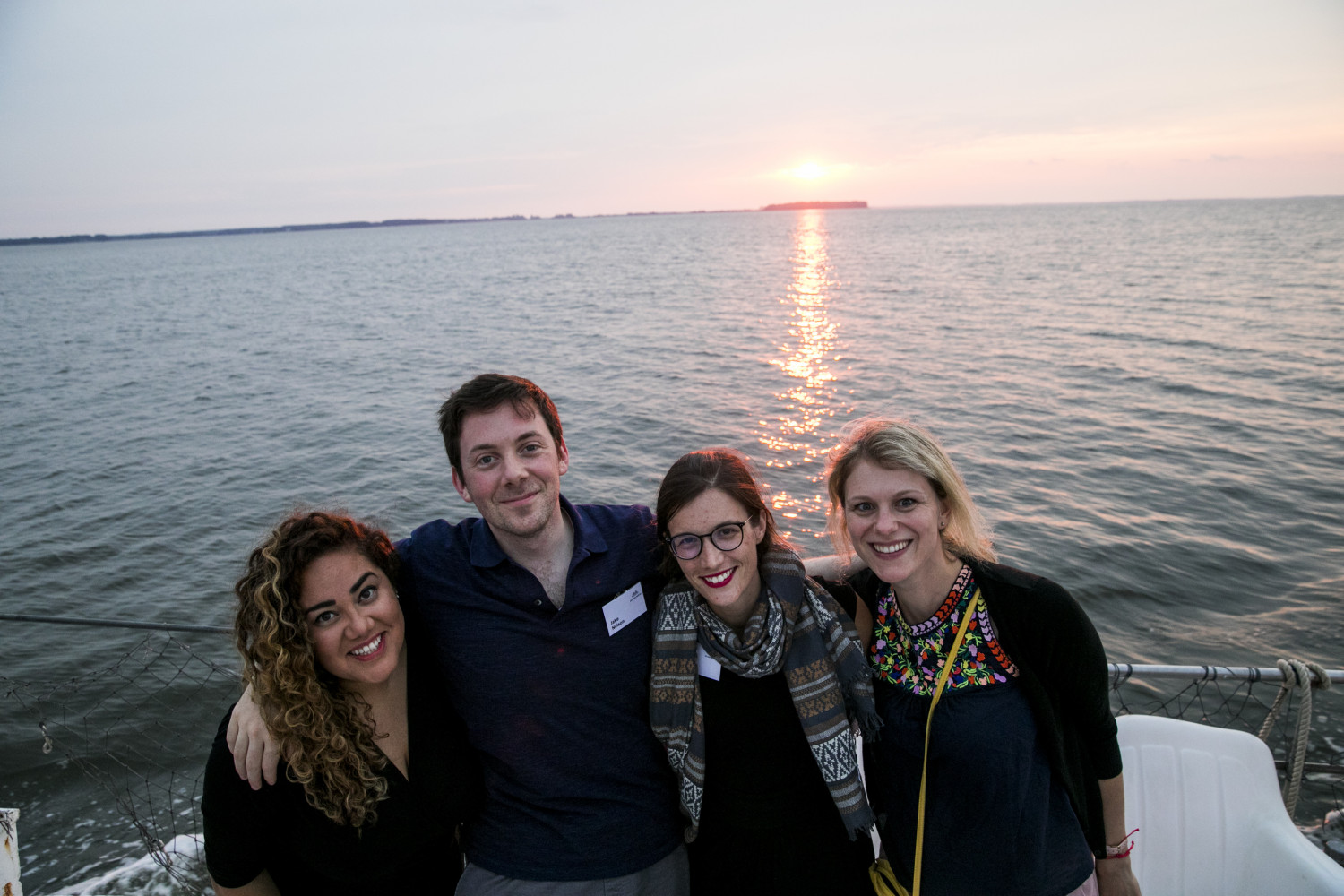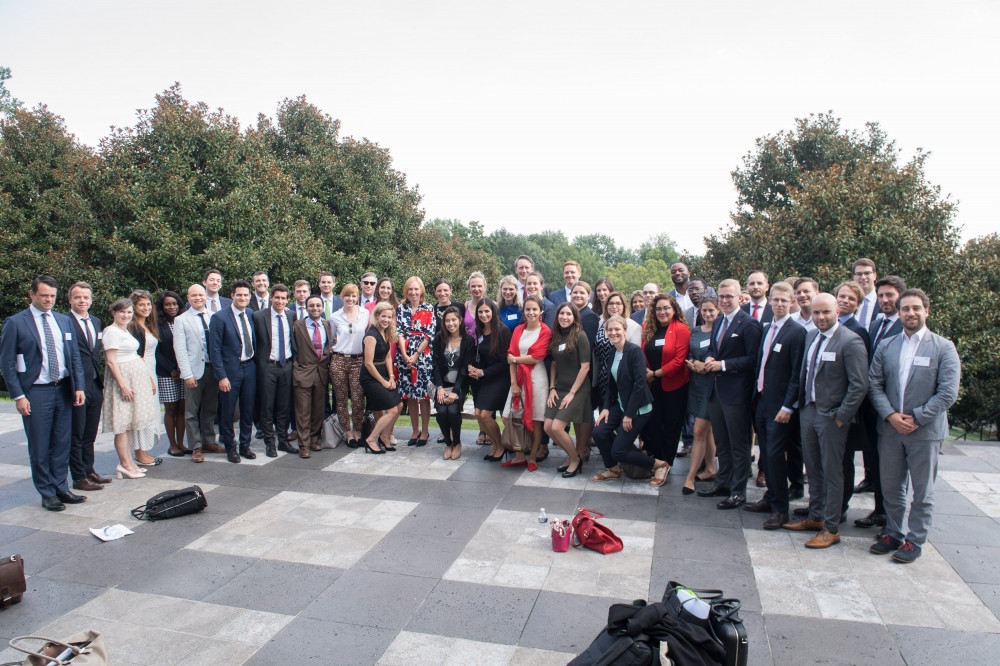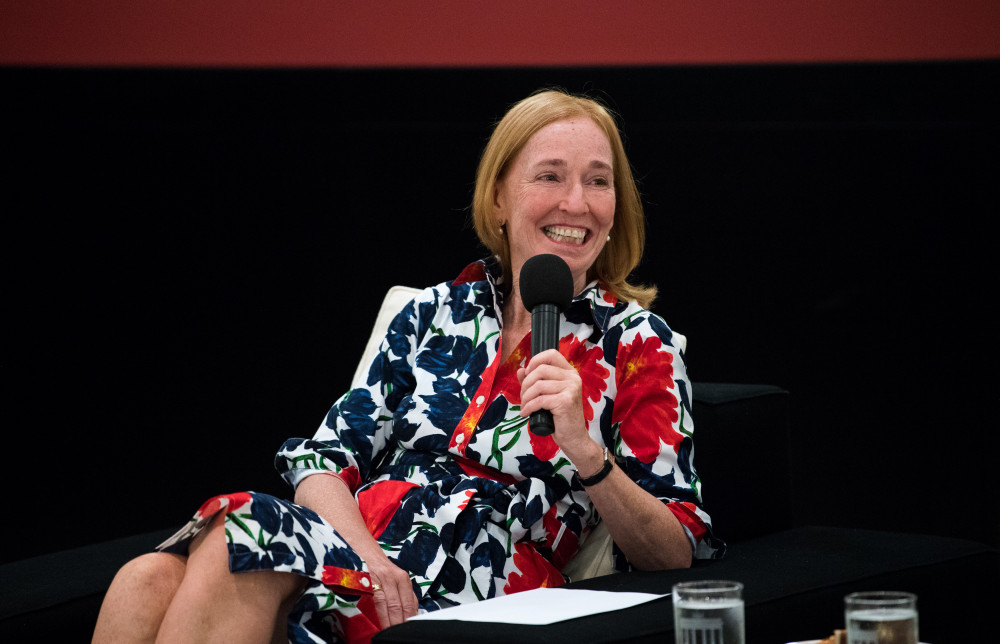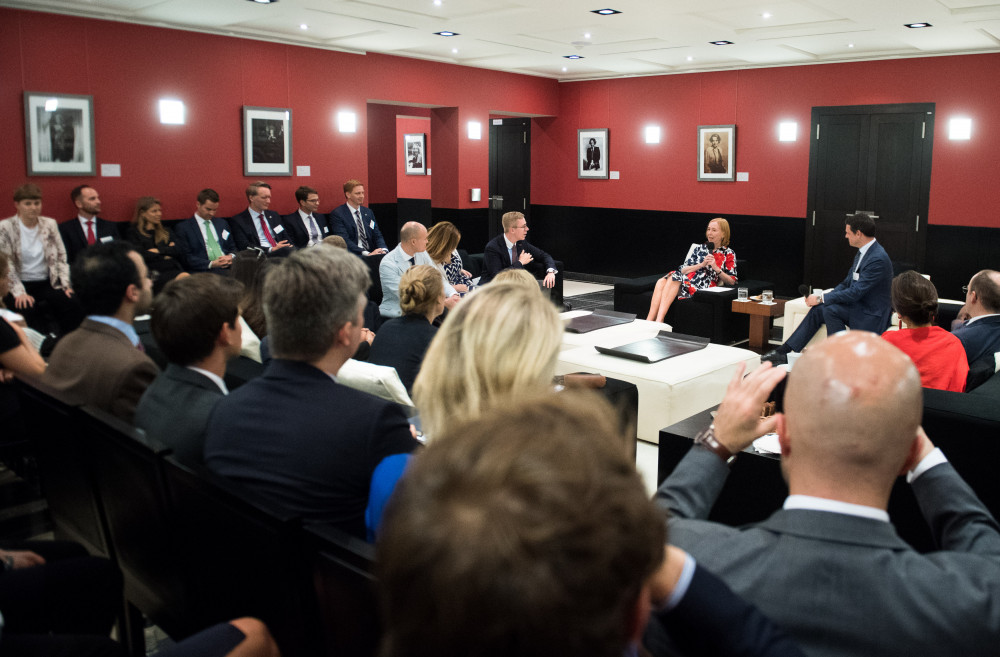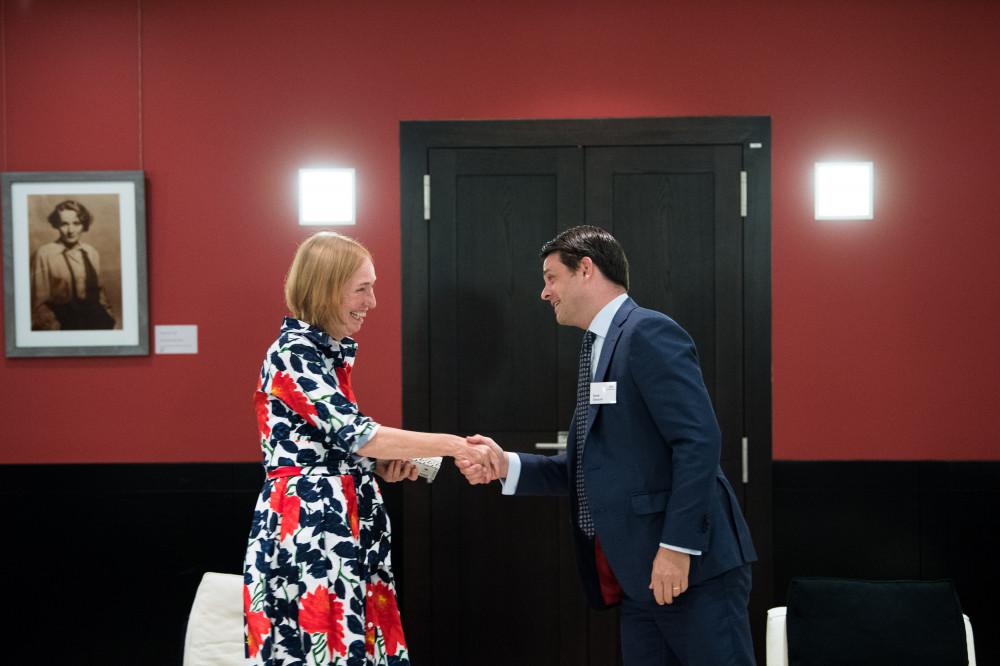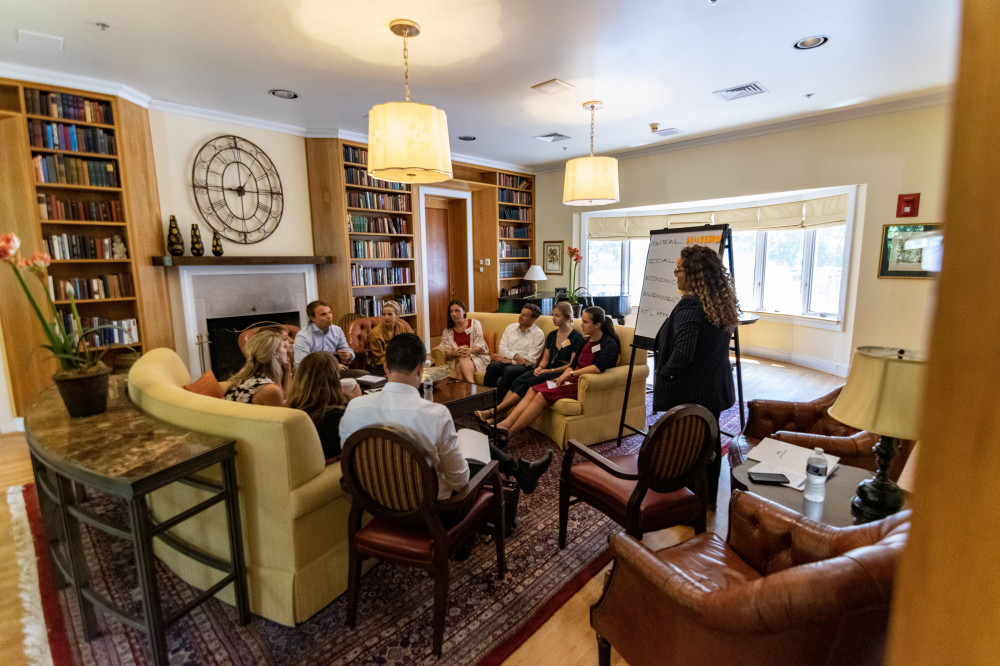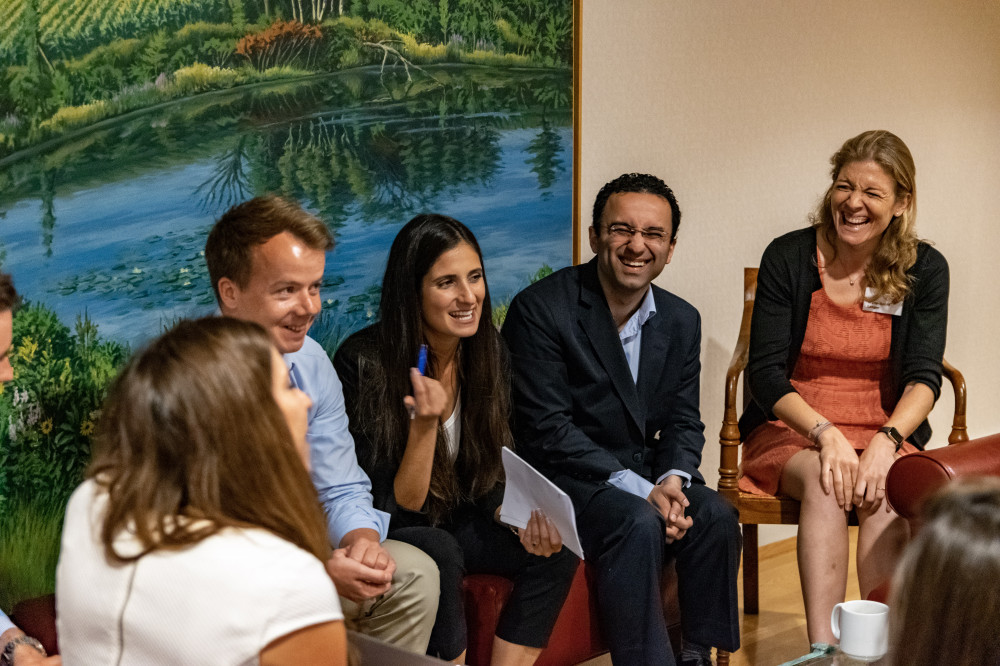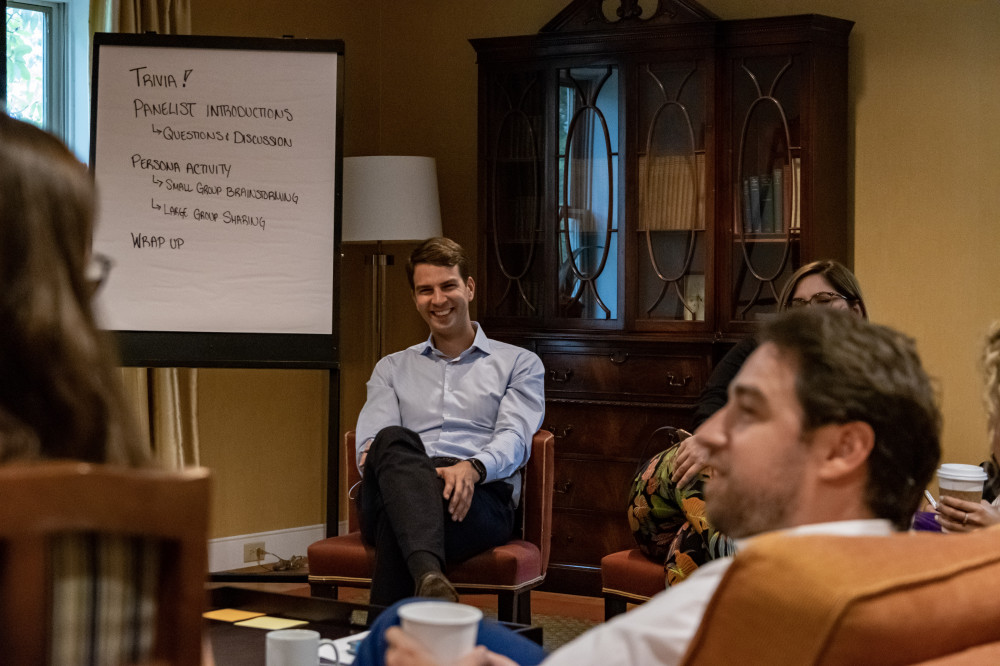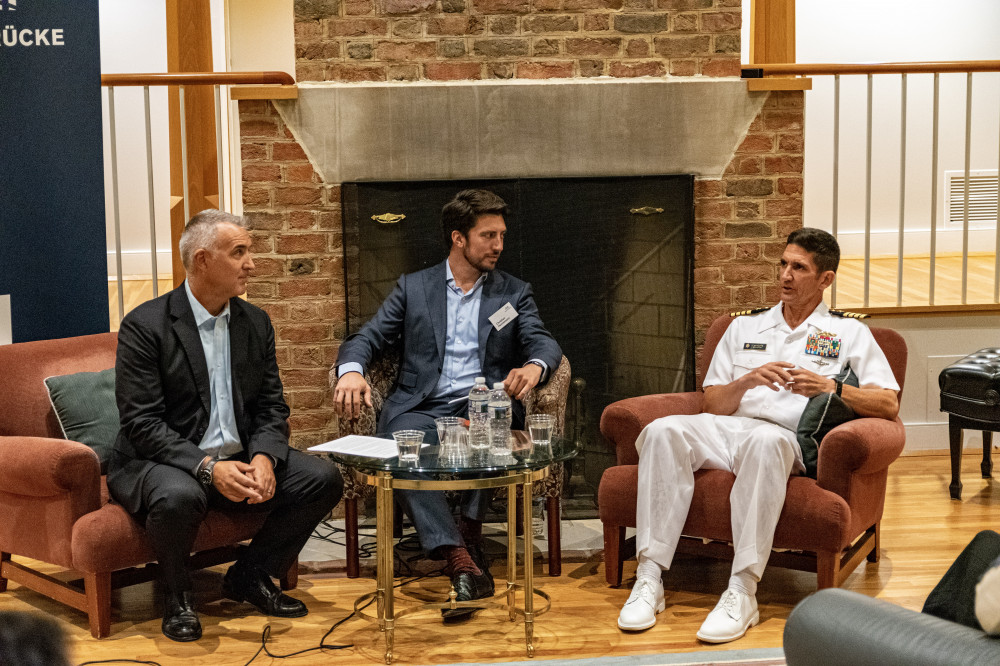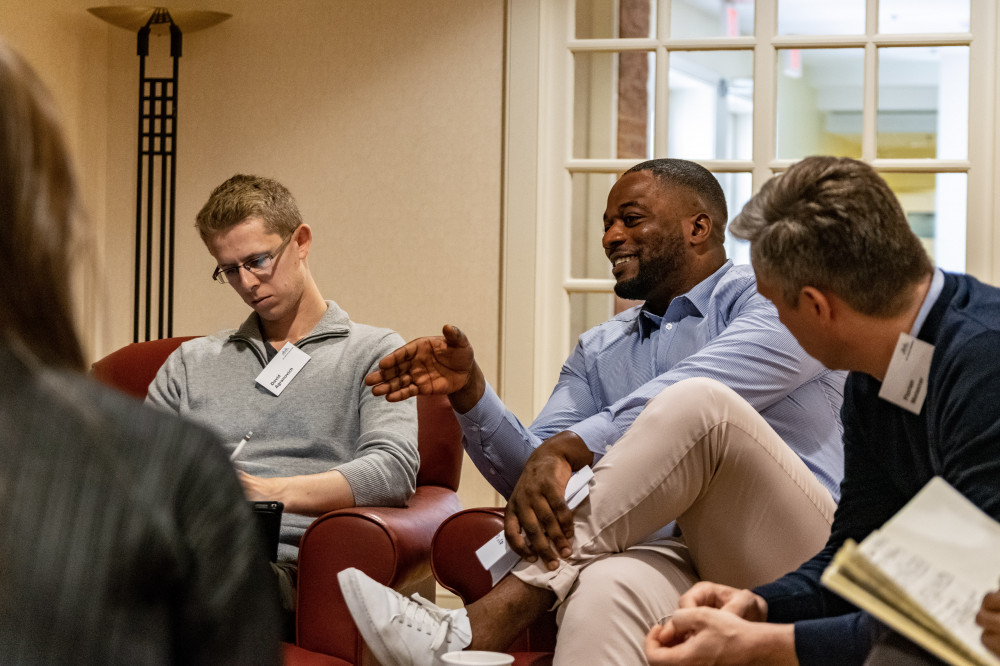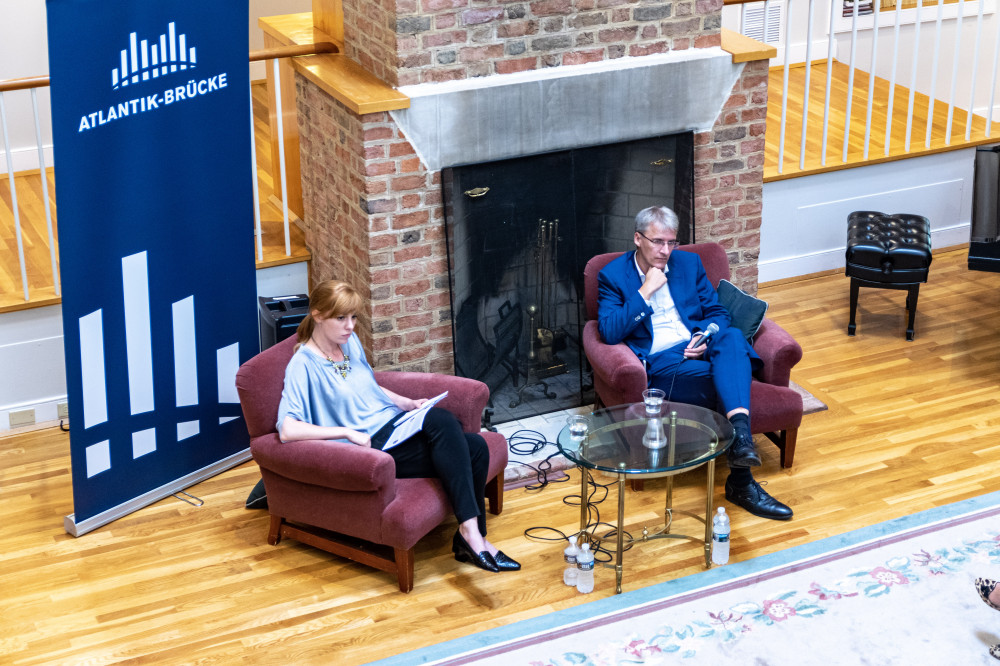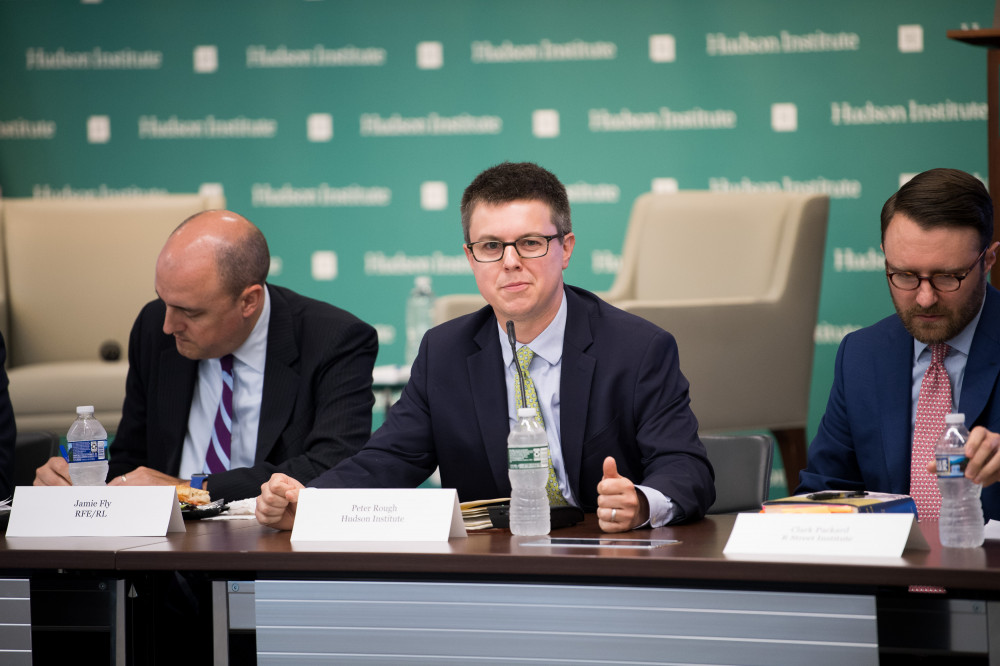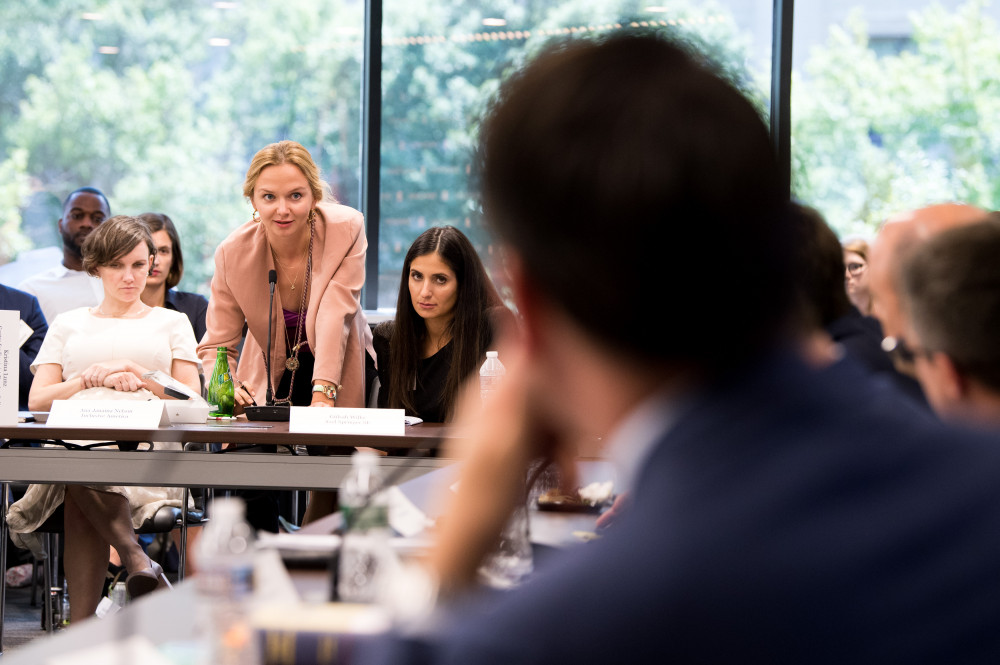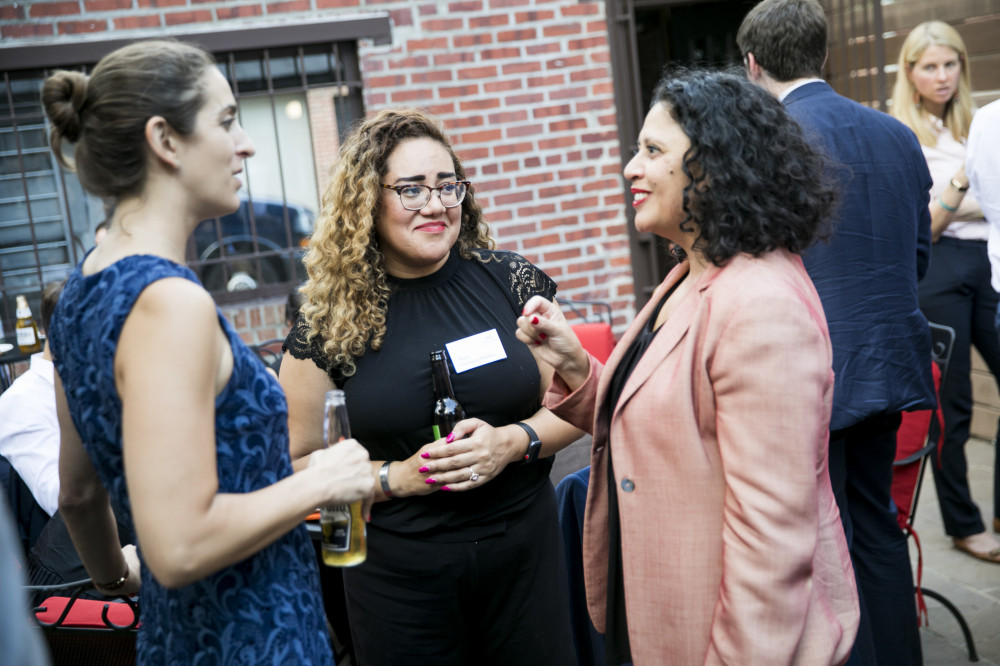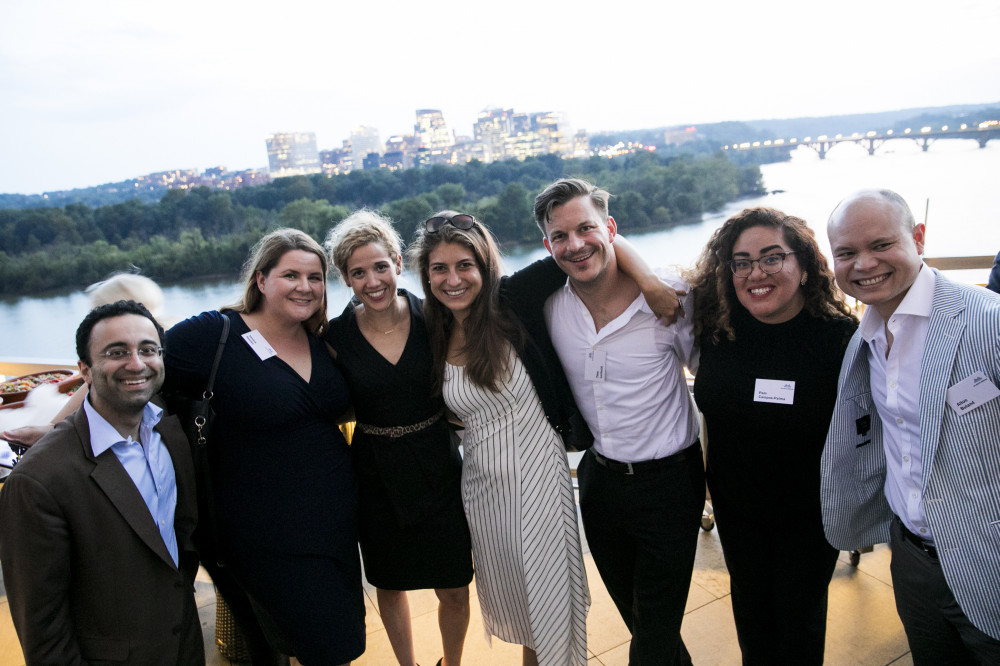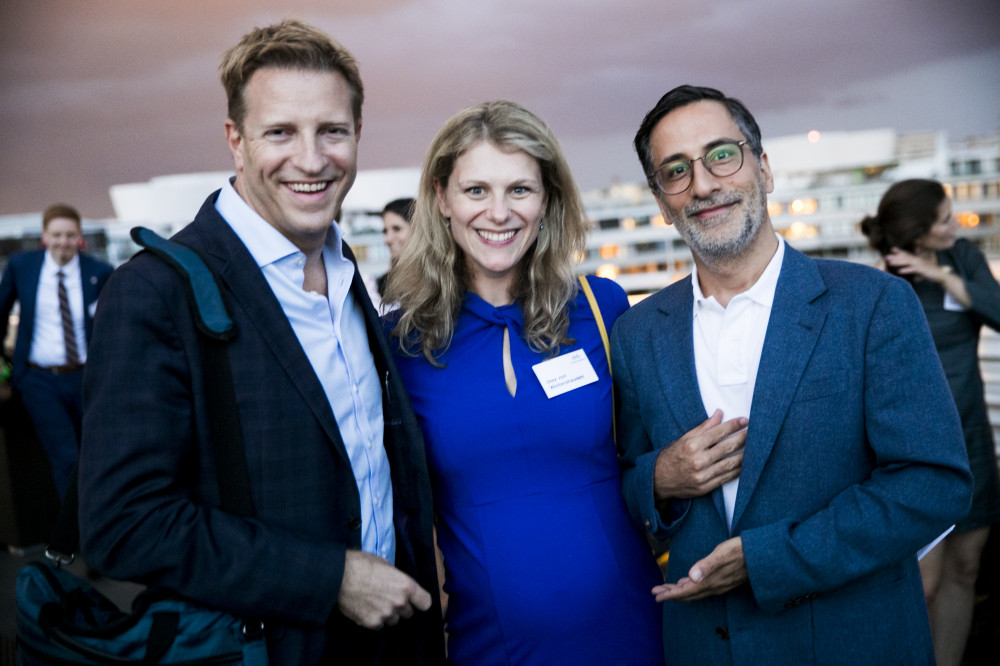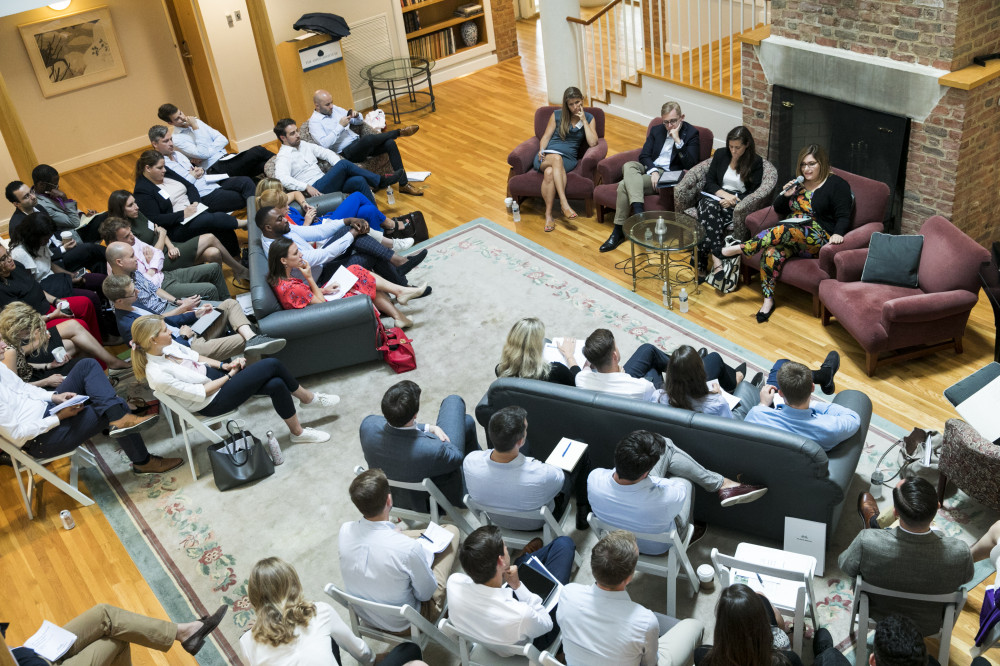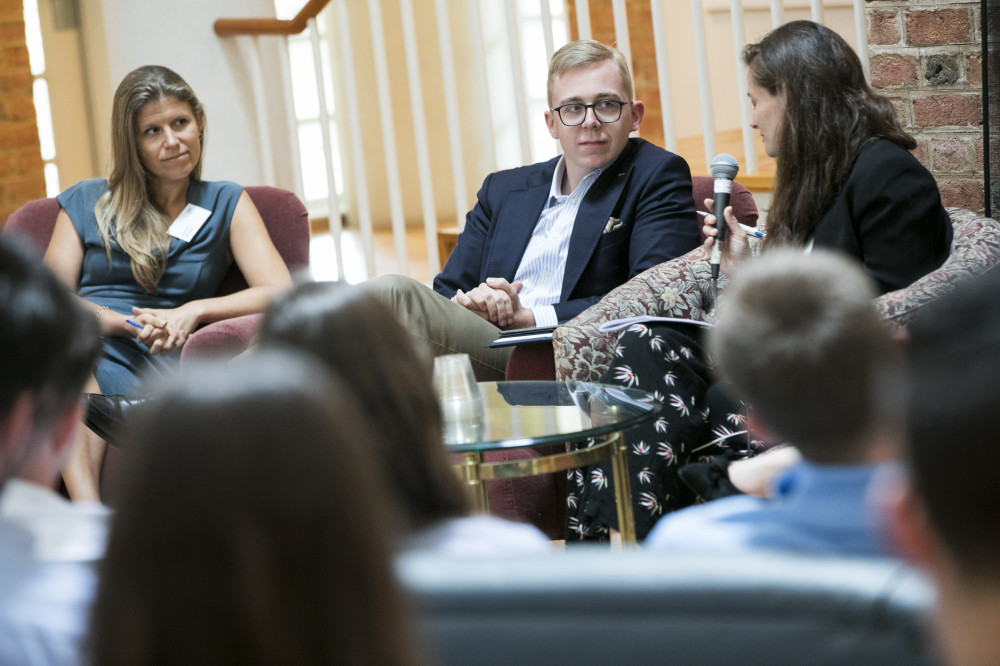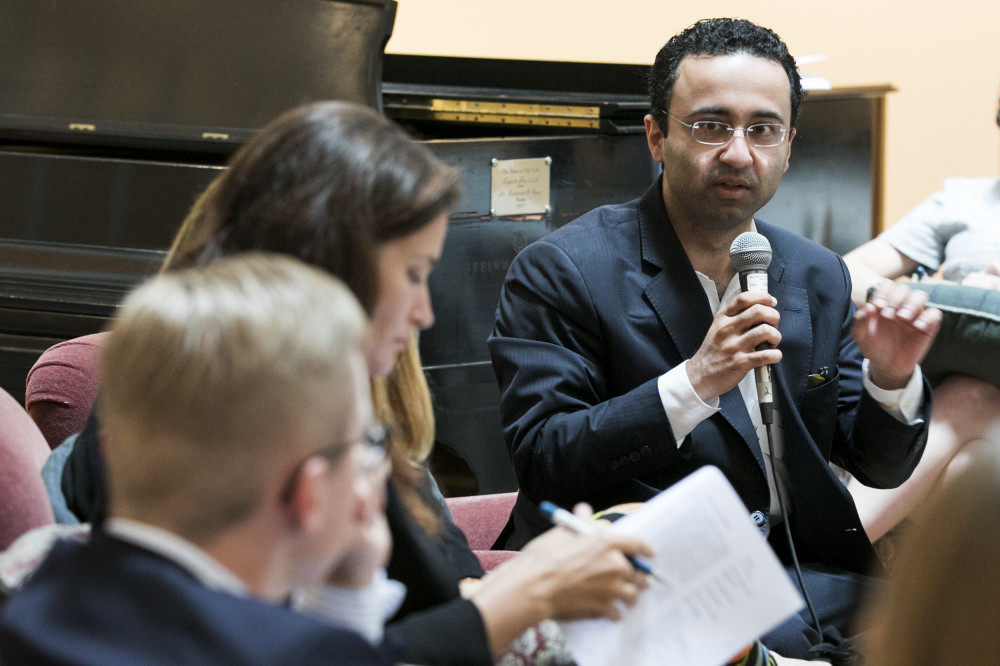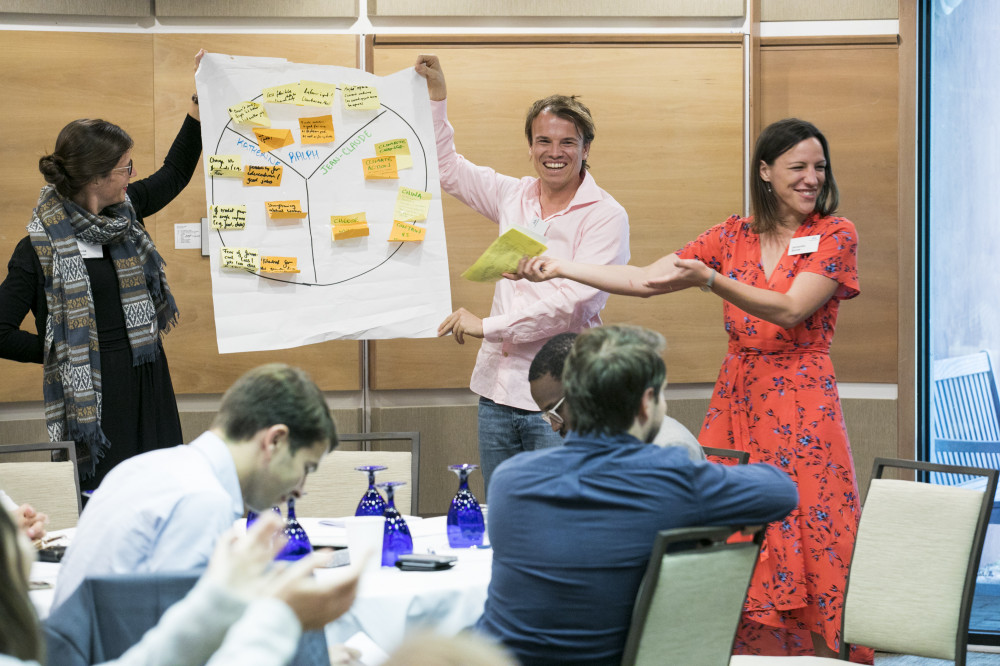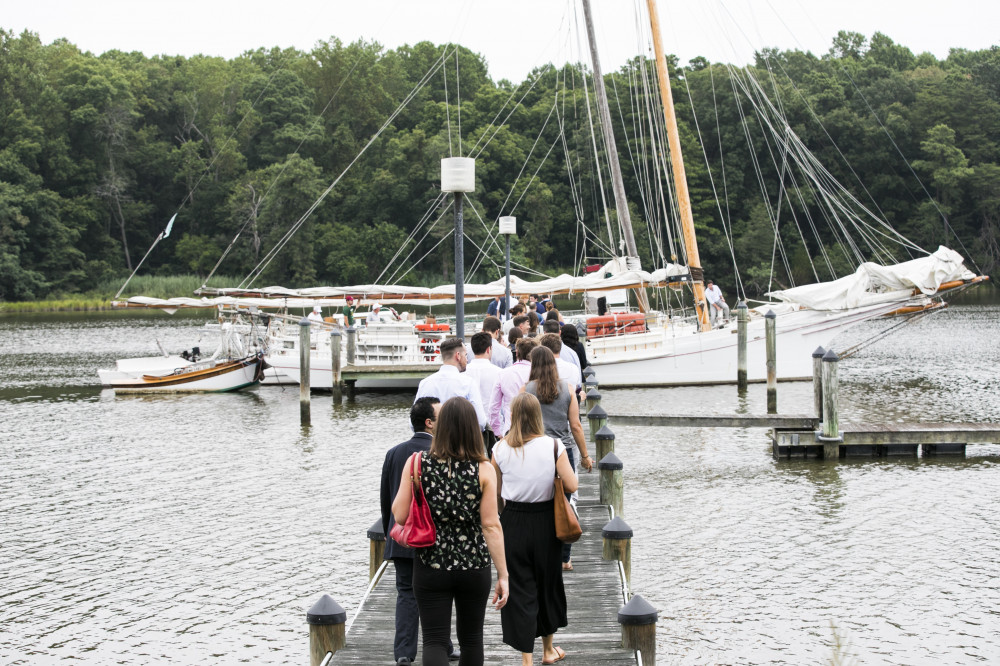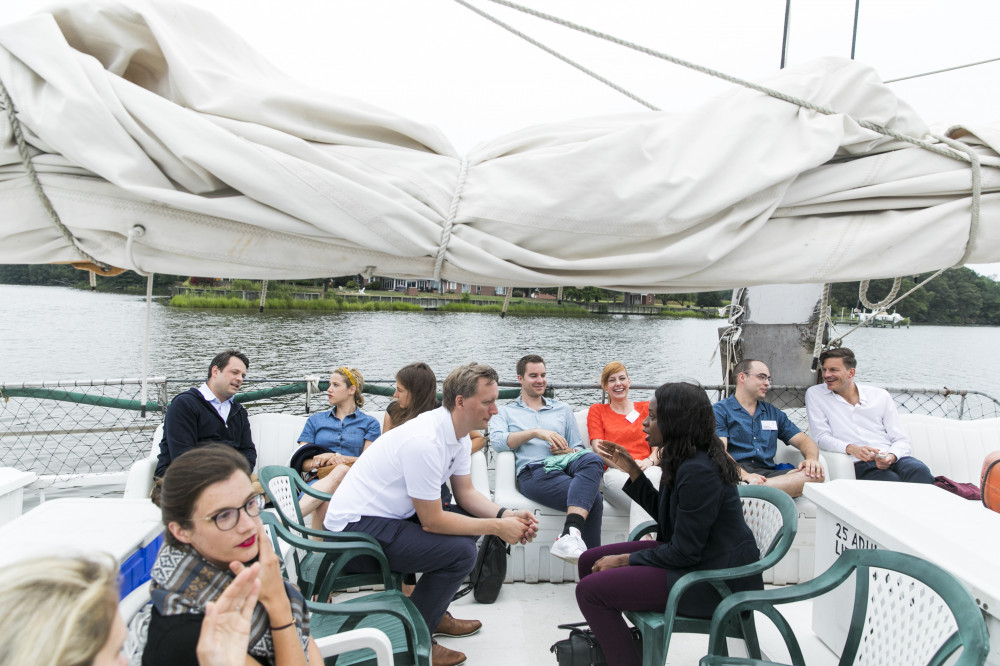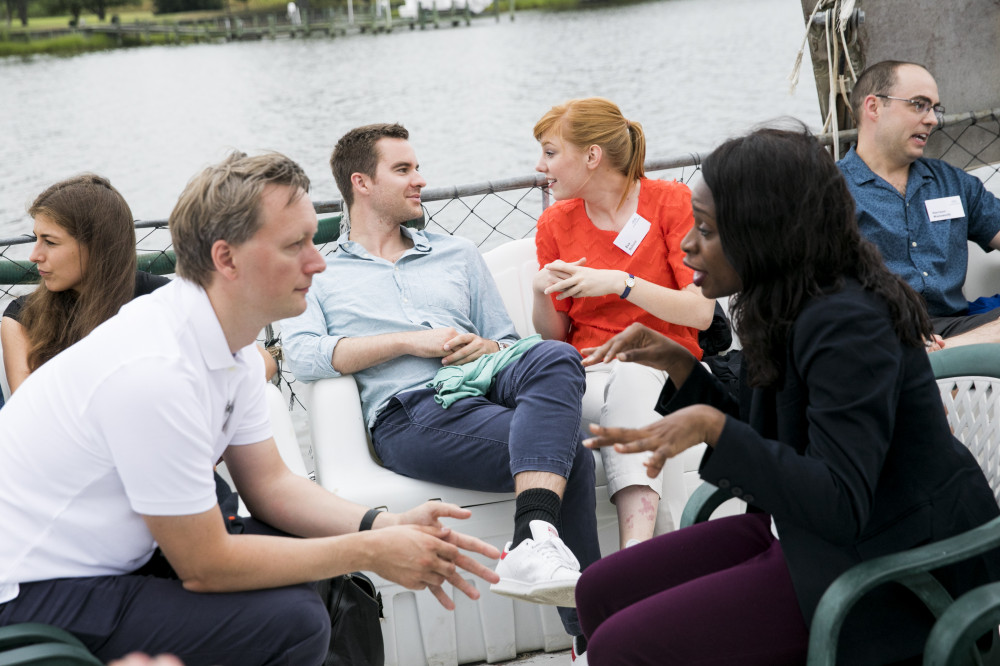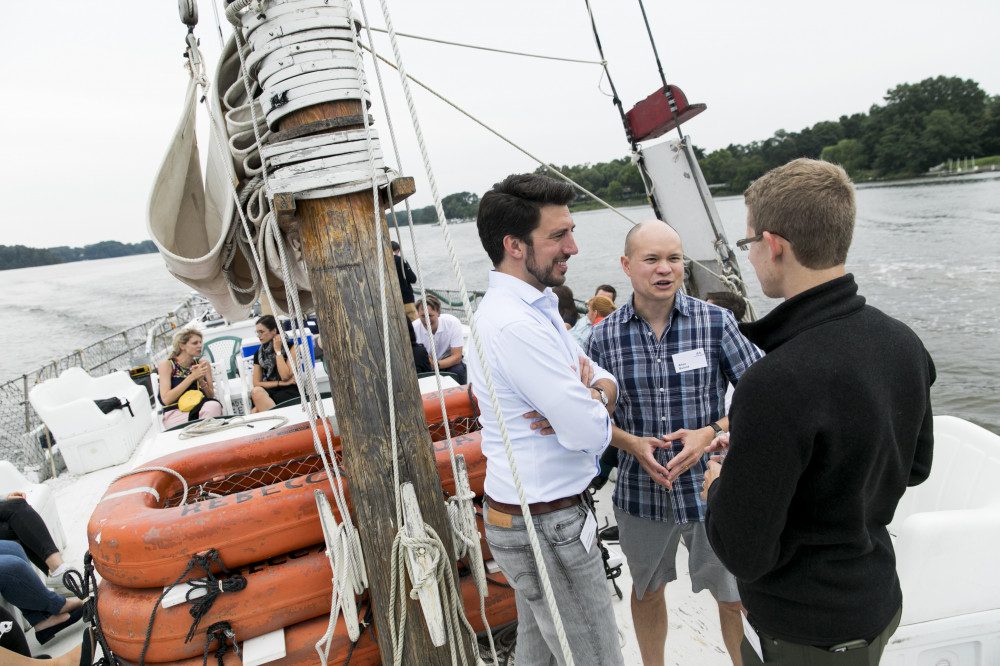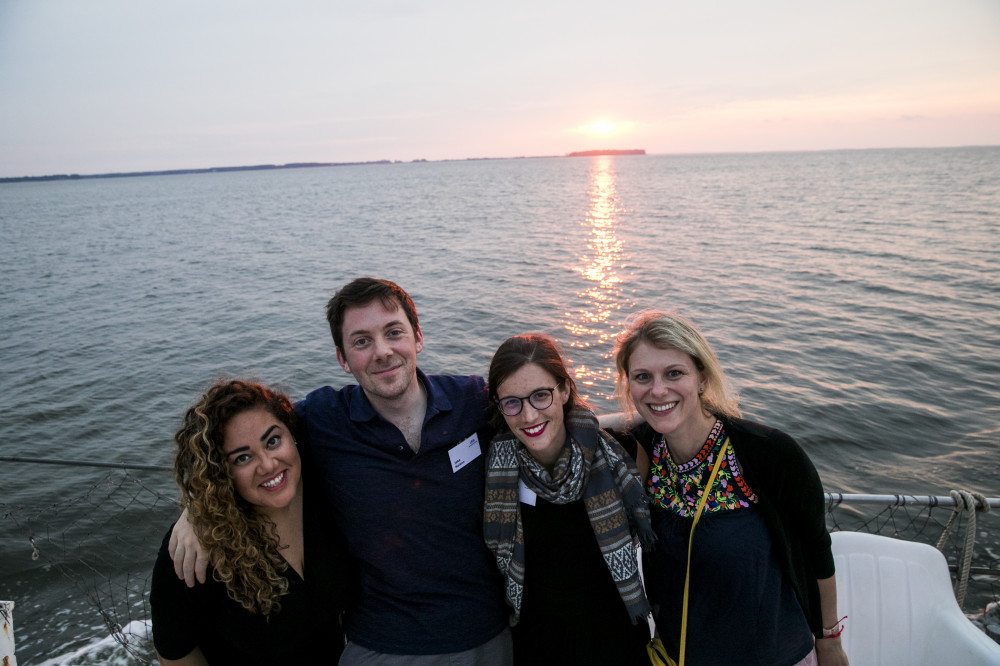Passing storm or tectonic shift?
German-American Young Leaders Conference
August 3-9, 2019, Queenstown, Maryland
By Caroline Naumann and Selma Stern
Forty-five Young Leaders from the United States and Germany came together for a week of deep engagement on transatlantic issues in August 2019 in Queenstown, Maryland. On a political level, this year’s cross-sectoral group of experts and young decision-makers observed a more volatile transatlantic relationship than previous classes. In times of rising nationalism and populism in both countries, the issues at stake were emotional, debates heated. Nonetheless, the bonds forged in less than a week show just how strong our transatlantic connection is on a fundamental level.
Seventy years after the founding of the North Atlantic Treaty Organization (NATO), many areas of debate between the U.S. and Germany are not new, but the domestic and global context is. At home, both countries are seeing a rise in right wing populism, which is driven by perceived injustices, national identity, and an inability to fully understand international interdependencies. Globally, the maelstrom created by the simultaneous rise of China, Russia’s geopolitical shift, President Trump, technological progress, increased global mobility, and climate change produces a complex new reality. In this piece, we focus on two overarching topics of the conference: global security policy and communication with domestic audiences.
Sustaining security cooperation in the face of mutual threats
Global security was a salient theme throughout this year’s conference. Julie Fisher, Deputy Assistant Secretary, Bureau of European and Eurasian Affairs at the U.S. Department of State gave an overview of the U.S. perspective, experts from the Hudson Institute, the German Marshall Fund of the United States and the Center for American Progress provided deep insight into the variety of viewpoints in Washington. The conversation with Emily Haber, German Ambassador to the United States, was a highlight of the conference and illustrated the German approach to foreign policy.
Virtually all discussions with experts from policy, business and the media touched on one point of contention between Berlin and Washington: German spending on its military. All NATO members committed to spending 2% of their GDP on defense. Germany’s budget, albeit growing, is not as significant as the U.S. and other NATO partners want it to be. Although this debate predates the Trump administration, the tone between Washington and Berlin has become harsher in recent years. Many of the conference’s interlocutors share the impression that the current U.S. style is counterproductive, although there is broad agreement that Germany is not yet complying with the Wales Pledge.
The Young Leaders conference showed that “the 2% debate” is as much if not more of a discourse problem than a substantial policy problem. At the core, foreign policy interests are, arguably, even more aligned than in previous years. There is broad agreement among policy makers that both countries are facing similar threats from outside the NATO alliance, especially in cyberspace, but also in conventional terms. Working-level relations between the foreign policy and defense bureaucracies on both sides are strong, as Colonel Terry Anderson, Associate Professor at the Naval War College, explained in detail. Germany has upped its defense spending significantly and is committed to further increases by 2024. Threat assessments vary due to geographical and historical differences, but there is significant common ground given the rise of China, Russia and various non-state actors challenging our free way of life in “the West”.
Facing the facts – and the perceptions
On a political level and in the wider public arena, mutual perceptions of Germany and the US are focused on the negative. The Trump administration’s retreat from several international regimes coupled with its insistence on more defense spending in the NATO context is seen as erratic and inconsistent in Germany. The confrontational tone from Washington and President Trump’s “America first” rhetoric feeds into a German perception of the United States as a global bully. This is echoed in public perception polls. While 72% of Americans perceive the relationship to be positive, only 24% of Germans believe the same (Pew, 2019). An Atlantik-Brücke study finds that 84.6% of Germans view German-American relations negatively (Atlantik-Brücke / Civey, 2019).
On the other hand, Germany is seen as tight-fisted, somewhat naive vis-à-vis Russia, and unreliable in terms of defense commitments in Washington. Within Germany, there is no domestic consensus about the depth and level of threat actually posed by Russia, leading to somewhat cautious and unassertive policy. These behaviors can in part be explained by history and geography but are often misread as a mere lack of German engagement.
Debating social media “debates”
The Young Leaders and most conference speakers came to a common conclusion: It is extremely important to “argue out” the emotional aspects of the discussion in order to get to the core of the policy issues, especially in such politically charged times. The natural forum for such debate is social media, though it has both positive and negative impacts on public discourse. It is well established that the algorithms behind Facebook, Twitter and others aim to reach users likely to agree with the stated views, not bring together varied perspectives for lively discussion. While social media is successfully being used to galvanize devoted followers, it is failing to spark the true political debate society needs.
Complicating matters further is the global trend of deliberately misleading information and manipulation of public discourse. Deep fakes (videos whose images and sound are realistically altered to send a different message) are on the rise and studies have found that there is a 70% higher likelihood that people retweet falsehoods than facts (MIT, 2018).
Breaking out of the echo chamber
Think tanks and the media indicated that the public’s perception of the U.S.-German relationship – and knowledge and understanding of foreign policy – can be tangibly strengthened by facilitating communication at the city- and state-level. Hometown heroes and local politicians can reach their communities through social and traditional media, and good old-fashioned ‘coffee and cake’ events. One Young Leader noted that this may be especially powerful if the leader is a reliable local figure who does not usually discuss foreign policy issues, because it would reach non-traditional audiences from a base of trust.
This is also true for policy areas other than international security. In various formats, the Young Leaders also worked on a range of other issues, including but not limited to migration, gender and identity, the rise of populism and the future of the media industry in an age of rapid digitization. Experts such as Elmar Theveßen, Washington Bureau Chief of ZDF and Jan Philipp Burgard, U.S. Correspondent & Deputy Bureau Chief of ARD, Germany’s national public broadcasting services, helped the group understand the key challenges transatlantic media professionals are navigating today. The group’s visit to Lockheed Martin shed light on controversial aspects of international trade and security.
Conclusion
Despite the current public perception and strained diplomatic rhetoric, nearly every discussion highlighted the common values, trends, and threats shared by both the U.S. and Germany. Across the board, speakers noted that the “working level” interaction between governments, civil societies, and economic institutions is quite strong and not as impacted by recent tensions as feared. This enforces the belief that the stronger the ties between individual actors in business, media, the public sector and civil society, the less lasting harm short term political tensions can do to our transatlantic alliance. This year’s Atlantik-Brücke Young Leaders are hopeful that this transatlantic storm will pass.
Citations
- MIT Fake News study, Mach 2018 http://news.mit.edu/2018/study-twitter-false-news-travels-faster-true-stories-0308
- Pew research study, March 2019 https://www.pewresearch.org/global/2019/03/04/americans-and-germans-disagree-on-the-state-of-bilateral-relations-but-largely-align-on-key-international-issues/
- Atlantik-Brücke study (in cooperation with Civey), February 2019
https://www.atlantik-bruecke.org/wp-content/uploads/AtlantikBrueckeUmfrage2019.pdf

